Fall and Winter
2023–24 titles

Fall and Winter
of Minnesota Press
University
SALES AND MARKETING
University of Minnesota Press 111 Third Ave. South, Suite 290 Minneapolis, MN 55401
Phone: 612-301-1990
Fax: 612-301-1980
ump@umn.edu
www.upress.umn.edu
@UMinnPress on Twitter, Facebook, and Instagram
Podcast: z.umn.edu/UMP_Pod
Assistant Director for Book Publishing
Emily Hamilton
612-301-1936
eph@umn.edu
Senior Sales Manager
Matt Smiley
612-301-1931
mwsmiley@umn.edu
Publicity Director and Assistant Marketing Manager
Heather Skinner
612-301-1932
FALL/WINTER 2023-24 BOOKS
p36 Ujju Aggarwal Unsettling Choice
p30 Giovanni Aloi Estado Vegetal
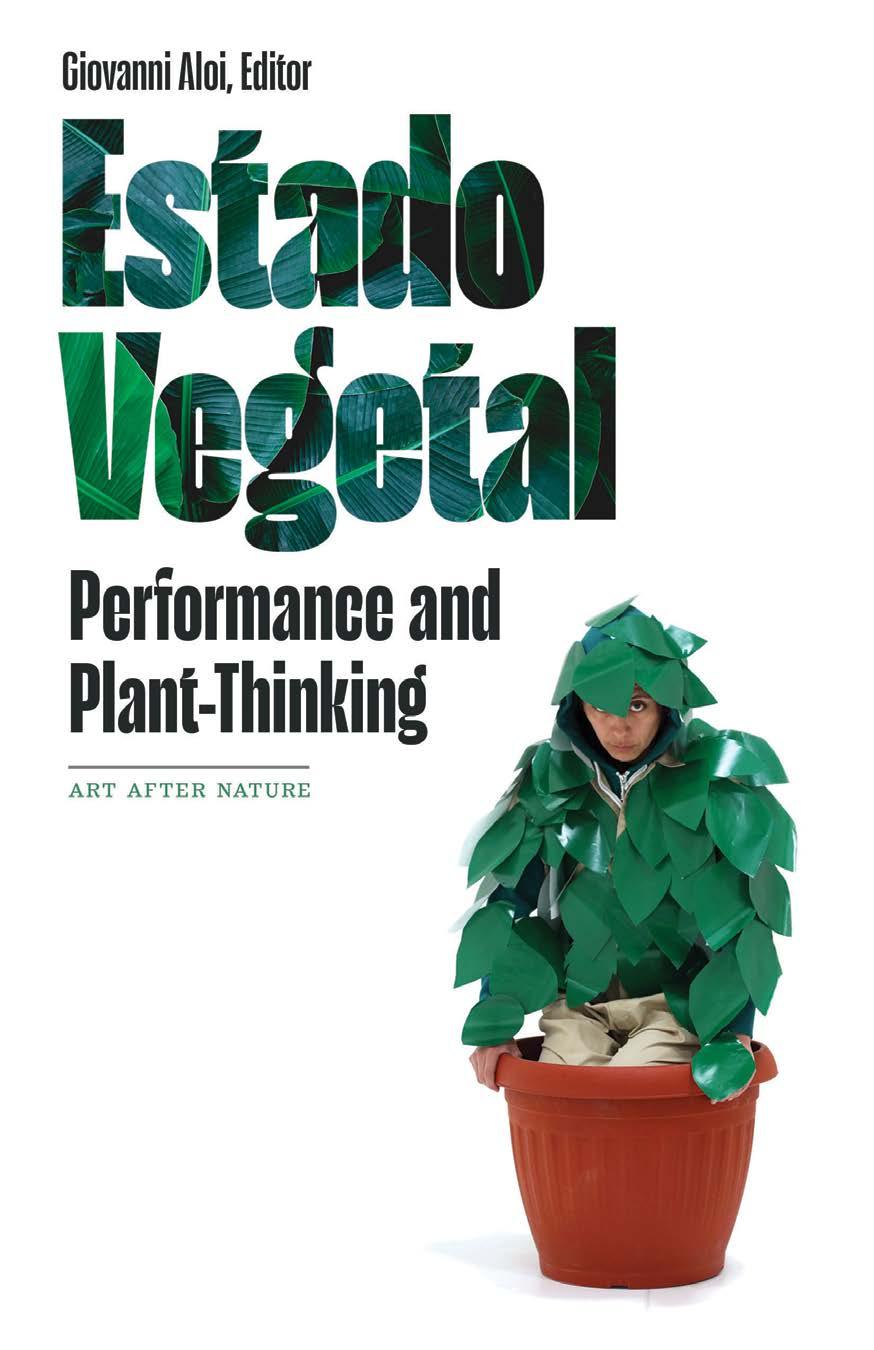
p40 Stephanie Athey Torture in the National Security Imagination
p8 Matthew Batt The Last Supper Club
p54 William C. Bausman, Janella K. Baxter, and Oliver M. Lean From Biological Practice to Scientific Metaphysics
p17
p55
Janet Beizer The Harlequin Eaters
Yossef S. Ben-Porath and Martin Sellbom Interpreting the MMPI-3
p29 Grant Bollmer The Affect Lab
p44 Robert Burgoyne T he New American War Film
p57 Sharad Chari Gramsci at Sea
p52
Irene Cheng The Shape of Utopia
p43 Eric Cheyfitz The Colonial Construction of Indian Country
p18 Brenda J. Child and Howard Oransky Dreaming Our Futures
p24 Joshua Comaroff and Ong Ker-Shing Horror in Architecture
p34

Brian Croxall and Diane K. Jakacki What We Teach When We Teach DH
in alphabetical order by author
p5 Linda LeGarde Grover A Song over Miskwaa Rapids
p15 K. Allison Hammer Masculinity in Transition
p38 Christoph Hanssmann Care without Pathology
p46 Feng-Mei Heberer Asians on Demand

p49 Rosemary J. Jolly The Effluent Eye

p4 Shigeru Kayama Godzilla and Godzilla Raids Again
p14 Miriam Kienle Queer Networks
p6 Elin Anna Labba The Rocks Will Echo Our Sorrow
p53 Edgar Landgraf Nietzsche's Posthumanism
p21 Sue Leaf Impermanence
p42 Stephanie Li Ugly White People
p45 Juan Llamas-Rodriguez Border Tunnels
p48 Kate Maclean Cash, Clothes, and Construction
p13 Jared D. Margulies The Cactus Hunters
p23 Larry Millett Rafferty's Last Case
p31 Audra Mitchell Revenant Ecologies
p41 Nicole Nguyen Terrorism on Trial
p10 Northern Waters Smokehaus Smoke on the Waterfront
p9 Nate Patrin The Needle and the Lens
p39 Christopher Perreira Archiving Medical Violence
For more contact information, please see the “Contact Us” section of our website
p56 Ranjodh Singh Dhaliwal, Théo Lepage-Richer, and Lucy Suchman Neural Networks
p12
Jason Puskar The Switch
p35 Stephen Ramsay On the Digital Humanities
fulfillment operations are through
NIETZSCHE’S pOSTHUmAN I s M

University of Minnesota Press c/o Chicago Distribution Center 11030 South Langley Ave. Chicago, IL 60628
Phone: (800) 621-2736 or (773) 702-7000
Fax: (800) 621-8476 or (773) 702-7212
We provide pubnet access. Our address is: PUBNET@202-5280.
p33 Denielle Elliott and Matthew J. Wolf-Meyer Naked Fieldnotes
p50
Lorenzo Fabbri Cinema Is the Strongest Weapon
p16 Gustave Flaubert Sentimental Education
p47 Margaret Galvan In Visible Archives
p27 Peter Geye The Ski Jumpers
p37 Michael Gill and Beth Myers Creating Our Own Lives
p57 Kathryn J. Gindlesparger Opening Ceremony
p26 Gary Goodman The Last Bookseller
p22 Cary J. Griffith Gunflint Falling
p19 Niklas Salmose and David Rennie F. Scott
Fitzgerald
p32 Matthew Schneider-Mayerson, Alexa Weik von Mossner, W. P. Malecki, and Frank
Hakemulder Empirical Ecocriticism
p28 Michel Serres Hermes I
p26 James Eli Shiffer The King of Skid Row
p25 Barbara Sjoholm The Palace of the Snow Queen
p7 Sigrid Undset Olav Audunssøn: IV. Winter
p51
Parisa Vaziri Racial Blackness and Indian Ocean
Slavery
p20
Douglas Wood A Wild Path
Feng-Mei Heberer
EDGAR LANDGRAF
BROWSE BY SUBJECT
NATIONAL TRADE AND LOCAL INTEREST
SCHOLARLY pp28–57
JOURNALS pp59–61
American Studies 39–42, 44–45, 52, 57
Anthropology and Ethnography
13, 33, 36

Art and Architecture 14, 18, 24, 47, 52

Cookbook 10–11
Cultural Studies 9, 12, 17, 50
Digital Culture 34–35
Disability Studies 37
Education 34–37, 57–58
Environment 13, 30–32
Fiction 4–5, 7, 16, 23, 27
Gender and Sexuality 15, 38, 47
Geography 13, 48
Health and Medicine 38–39, 49
Literary Criticism 15, 17, 32, 42–43, 49
pp4–27, 58
Media and Film 9, 14, 44–47, 50–51, 56
Minnesota and Regional Interest
5, 8, 10–11, 18–23, 26–27, 58
Music 9
Native American and Indigenous Studies 5, 6, 18, 25, 31, 43
Natural History 20–22, 58
Nonfiction Literature and Memoir
6, 8, 19–22, 25–26, 58
Paperback Reprints and Distributions
18, 23, 26–27, 56
Philosophy and Theory 28, 30, 53–54, 57
Political Science 31, 40–41, 48
Psychology 29, 55
Science and Technology 12, 29

Scandinavia 6–7, 25
BOOKSELLERS
University of Minnesota Press fulfillment operations are through the Chicago Distribution Center. The address is: University of Minnesota Press c/o Chicago Distribution Center 11030 South Langley Ave. Chicago, IL 60628 Phone: (800) 621Fax: (800) 621-
We provide pubnet access. Our address is: PUBNET@202-
For our current discount structure, please contact our sales manager at mwsmiley@umn.edu.
DISCOUNTS
We use three discount structure classes: Trade, Short, and Super Short. Short titles are marked with “x”, super short titles are marked “xx”, and trade titles are not marked.
E-BOOKS
Books in this catalog are listed with their retail e-book ISBNs. Digital editions of most University of Minnesota Press titles are available through a variety of retailers. Our list is continually updated at z.umn. edu/aboutebooks.
More bookseller information is on the inside back cover.
Cactus Hunters
Extinction in the Illicit Succulent Trade


THE ARCHITECTURE IN NINETEENTH-CENTURY
Eye Rosemar y J Jolly
Godzilla and Godzilla Raids Again
SHIGERU KAYAMA
TRANSLATED AND WITH AN AFTERWORD BY JEFFREY ANGLES
The first English translations of the original novellas about the iconic kaijū Godzilla

“At long last, the pathbreaking novellas by Shigeru Kayama that launched the Godzilla franchise are finally available in English. It was well worth the wait: Jeffrey Angles’s lively translation captures all the action, emotion, and political edge of the original Japanese texts. This engaging volume will be a revelation for Godzilla fans, a rich resource for students of Japan, and a rewarding read for anyone who enjoys classic tales of science fiction and adventure.”
—William M. Tsutsui, chancellor of Ottawa University and author of Godzilla on My Mind: Fifty Years of the King of Monsters
“An invaluable addition to the history of Japanese science fiction cinema and literature.”
—Steve Ryfle, coauthor of Ishiro Honda: A Life in Film, from Godzilla to Kurosawa
Godzilla emerged from the sea to devastate Tokyo in the now-classic 1954 film, produced by Tōhō Studios and directed by Ishirō Honda, creating a global sensation and launching one of the world’s most successful movie and media franchises. Awakened and transformed by nuclear weapons testing, Godzilla serves as a terrifying metaphor for humanity’s shortsighted destructiveness: this was the intent of Shigeru Kayama, the science fiction
writer who drafted the 1954 original film and its first sequel and, in 1955, published these novellas.
Although the Godzilla films have been analyzed in detail by cultural historians, film scholars, and generations of fans, Kayama’s two Godzilla novellas—both classics of Japanese young-adult science fiction—have never been available in English. This book finally provides English-speaking fans and critics the original texts with these first-ever English-language translations of Godzilla and Godzilla Raids Again. The novellas reveal valuable insights into Kayama’s vision for the Godzilla story, feature plots that differ from the films, and clearly display the author’s strong antinuclear, proenvironmental convictions.
Kayama’s fiction depicts Godzilla as engaging in guerrilla-style warfare against humanity, which has allowed the destruction of the natural world through its irresponsible, immoral perversion of science. As human activity continues to cause mass extinctions and rapid climatic change, Godzilla provides a fable for the Anthropocene, powerfully reminding us that nature will fight back against humanity’s onslaught in unpredictable and devastating ways.
Shigeru Kayama (1904–1975) was a science fiction writer and scenarist whose early stories about monsters and mutated sea creatures attracted the attention of Tōhō Studios, which asked him to draft the first two Godzilla films. The film Half Human by Tōhō Studios was also based on one of his stories, and he contributed to the screenplay for the Tōhō film The Mysterians
Jeffrey Angles is professor of Japanese at Western Michigan University. He is author of Writing the Love of Boys (Minnesota, 2011) and award-winning translator of Orikuchi Shinobu’s The Book of the Dead (Minnesota, 2017) and Hiromi Ito’s The Thorn Puller
SCIENCE FICTION
$19.95 Paper ISBN: 978-1-5179-1523-0
$19.95 Retail e-book ISBN: 978-1-4529-6985-5
OCTOBER
256 pages 5 1/2 x 8 1/4
4 UNIVERSITY OF MINNESOTA PRESS FALL/WINTER 2023–24
A Song over Miskwaa Rapids
A Novel
LINDA L E GARDE GROVER
A fifty-year-old mystery converges with a present-day struggle over family, land, and history
When a rock is dislodged from its slope by mischievous ancestors, the past rises to meet the present, and Half-Dime Hill gives up a gruesome secret it has kept for half a century. Some people of Mozhay Point have theories about what happened; others know—and the discovery stirs memories long buried, reviving a terrible story yet to be told.
Returning to the fictional Ojibwe reservation in northern Minnesota she has so deftly mapped in her award-winning books, Linda LeGarde Grover reveals traumas old and new as Margie Robineau, in the midst of a fight to keep her family’s long-held allotment land, uncovers events connected to a long-ago escape plan across the Canadian border, and the burial—at once figurative and painfully real—of not one crime but two. While Margie is piecing the facts together, Dale Ann is confronted by

her own long-held secrets and the truth that the long ago and the now, the vital and the departed are all indelibly linked, no matter how much we try to forget.
As the past returns to haunt those involved, Margie prepares her statement for the tribal government, defending her family’s land from a casino development and sorting the truths of Half-Dime Hill from the facts that remain there. Throughout the narrative, a chorus of spirit women gather in lawn chairs with coffee and cookies to reminisce, reflect, and speculate, spinning the threads of family, myth, history, and humor—much as Grover spins another tale of Mozhay Point, weaving together an intimate and complex novel of a place and its people.
Beginning with her award-winning debut story collection
The Dance Boots and continuing with her novels The Road Back to Sweetgrass and In the Night of Memory, both published by Minnesota, Linda LeGarde Grover has created and explored the imaginary Mozhay Point Ojibwe Reservation in northern Minnesota. She also wrote the poetry collection The Sky Watched and a book blending memoir, history, and Ojibwe tradition, Gichigami Hearts: Stories and Histories from Missabekong. She is professor emerita of American Indian studies at the University of Minnesota Duluth and a member of the Bois Forte Band of Ojibwe.
FICTION/NATIVE AMERICAN
$21.95 Cloth/jacket ISBN: 978-1-5179-1462-2
$21.95 Retail e-book ISBN: 978-1-4529-6846-9
NOVEMBER
160 pages 5 1/2 x 8 1/4
Retail e-book files for this title are screen-reader friendly.
5 UNIVERSITY OF MINNESOTA PRESS FALL/WINTER 2023–24
The Rocks Will Echo Our Sorrow
The Forced Displacement of the Northern Sámi
ELIN ANNA LABBA
TRANSLATED BY FIONA GRAHAM
The deep and personal story—told through history, poetry, and images—of the forced displacement of the Sámi people from their homeland in northern Norway and Sweden and its reverberations today

More than a hundred years have passed since the Sámi were forcibly displaced from their homes in northern Norway and Sweden, a hundred years since Elin Anna Labba’s ancestors and relations drove their reindeer over the strait to the mainland for the last time. The place where they lived has remained empty ever since. We carry our homes in our hearts, Labba shares, citing the Sámi poet Áillohaš. How do you bear that weight if you were forced to leave? In a remarkable blend of historical reportage, memoir, and lyrical reimagining, Labba travels to the lost homeland of her ancestors to tell of the forced removal of the Sámi in the early twentieth century and to reclaim a place in history, and in today’s world, for these Indigenous people of northern Scandinavia.
When Norway became a country independent from Sweden in 1905, the two nations came to an agreement that called for the displacement of the Northern Sámi, who spent summers on the Norwegian coast and
winters in Sweden. This “dislocation,” as the authorities called it, gave rise to a new word in Sámi language, bággojohtin, forced displacement. The first of the sirdolaččat, or “the displaced,” left their homes fully believing they would soon return. Through stories, photographs, letters, and joik lyrics, Labba gathers a chorus of Sámi expression that resonates across the years, evoking the nomadic life they were required to abandon and the immense hardship and challenges they endured: children left behind with relatives, reindeer lost when they returned to familiar territory, sorrow and estrangement that linger through generations.
Starkly poetic and emotionally heartwrenching, this dark history is told through the voices of the sirdolaččat, echoing the displacements of other Indigenous people around the world as it depicts the singular experience of the Northern Sámi. For her extraordinary work, Labba was awarded Sweden’s most important national book prize in 2020, the August Prize for Best Nonfiction.
THE ROCKS WILL ECHO OUR SORROW
THE FORCED DISPLACEMENT OF THE NORTHERN SÁMI
Fiona Graham is a British translator living in Belgium. She translated Elisabeth Åsbrink’s 1947: When Now Begins, which was an English PEN award winner and a National Public Radio Best Book of the Year.
NONFICTION/HISTORY
$22.95 Cloth/jacket ISBN: 978-1-5179-1330-4
$22.95 Retail e-book ISBN: 978-1-4529-7053-0
DECEMBER
168 pages 65 b&w illustrations 5 15/16 x 8 7/8
6 UNIVERSITY OF MINNESOTA PRESS FALL/WINTER 2023–24
ELIN ANNA LABBA
TRANSLATED BY FIONA GRAHAM
Elin Anna Labba is a Sámi journalist and was previously editor-in-chief of the magazine Nuorat. She works for the Sámi Authors’ Centre, whose mission is to strengthen and make visible Sámi literature. She received Sweden’s August Prize for Best Nonfiction as well as the prestigious Norrland Literature Prize.
Olav Audunssøn
IV. Winter SIGRID UNDSET TRANSLATED BY TIINA NUNNALLY
The fourth and final volume in the Nobel Prize–winning writer’s epic of one man’s fateful life in medieval Norway
Set in thirteenth-century Norway, a land racked by political turmoil, bloody family vendettas, and rising tensions between secular powers and an ascendant church, Sigrid Undset’s spellbinding masterpiece now follows the fortunes of Olav Audunssøn to the final, dramatic chapter of his life as it unfolds in Winter, the last volume of the tetralogy. When the orphaned Olav and his foster sister Ingunn became betrothed in their youth, a chain of events is set in motion that eventually leads to violence, banishment, and a family separation lasting years. The consequences fracture their marriage and threaten the lineage for generations. Now, at the end of his life, Olav continues to grapple with the guilt of his sins as he watches his children, especially Eirik, make disastrous choices and struggle to find their rightful place in a family haunted by the past.
With its precise details and sweeping vision, Olav Audunssøn summons a powerful picture of Northern life in medieval times, as noted by the Swedish Academy in awarding Undset
the Nobel Prize in 1928. Conveying both the intimate drama and the epic proportions of Olav’s story at its conclusion, Winter is a moving and masterly recreation of a vanished world tainted by bloodshed and haunted by sin and retribution—yet one that might still offer a chance for redemption.

As with Kristin Lavransdatter, her earlier medieval epic, Sigrid Undset wrote Olav Audunssøn after immersive research in the legal, religious, and historical writings of the time to create an astoundingly authentic and compelling portrait of Norwegian life in the Middle Ages. And as in her translation of Kristin Lavransdatter, Tiina Nunnally does full justice to Undset’s natural, fluid prose—in a style by turns plainspoken and delicately lyrical—to convey the natural world, the complex culture, and the fraught emotional territory against which Olav’s story inexorably unfolds.
Sigrid Undset (1882–1949) was a prolific Norwegian writer and winner of the Nobel Prize in Literature. She is best known for her epic medieval trilogy Kristin Lavransdatter and the tetralogy Olav Audunssøn. Her novel Marta Oulie is also published in translation by the University of Minnesota Press.
Tiina Nunnally is the award-winning translator of many works, including Sigrid Undset’s Kristin Lavransdatter She has translated books by Tove Ditlevsen, Ola Larsmo, Vidar Sundstøl, and Per Olov Enquist, as well as The Complete and Original Norwegian Folktales of Asbjørnsen and Moe (Minnesota, 2019).
FICTION
$17.95 Paper ISBN: 978-1-5179-1541-4
$17.95 Retail e-book ISBN: 978-1-4529-7018-9
OCTOBER
352 pages 1 map 5 1/2 x 8 1/4
7
UNIVERSITY OF MINNESOTA PRESS FALL/WINTER 2023–24
The Last Supper Club
A Waiter’s Requiem
MATTHEW BATT
A witty and humble tribute to the sometimes profane, sometimes profound world of waiting tables
“Deliciously funny, vividly peopled, wise, and big-hearted, The Last Supper Club is a book you will devour in one sitting and wish you could go back for seconds. If Anthony Bourdain’s Kitchen Confidential and Stephanie Danler’s Sweetbitter had a love child, it would be this superb book!”
—Adrienne Brodeur, author of Wild Game: My Mother, Her Secret, and Me
“This book should come with a trigger warning for those of us who’ve ever waited tables. Like any great dish, The Last Supper Club has so many layers and flavors: it’s a waiter’s memoir, it’s a vital history of a remarkable restaurant, it’s an incisive meditation on the nature of work, and it’s a heartfelt story of someone who went searching for a paycheck but found something else entirely—family, and purpose, and joy.”
—Nathan Hill, author of The Nix and Wellness
“In his gloriously food-obsessed and mournful memoir The Last Supper Club, Matthew Batt channels the thrill of a seamless service, the tension of having no place to hide failure, and the implicit critique of academic jobs that require a second income. His ode to the chaos and thrill of the restaurant business is a hilarious, elegiac look at the all-too-brief gratification of being exactly where you want to be.”
—Michelle Wildgen, author of Wine People
During a year on sabbatical from his university position, Matthew Batt realized he needed money—fast—and it just so happened that one of the biggest breweries in the Midwest was launching a restaurant and looking to hire. So it was that the forty-something tenured professor found himself waiting tables at a high-end restaurant situated in a Minneapolis brewery. And loving it.
Batt’s memoir conveys the challenge—and the satisfaction—of meeting the demands of a frenzied kitchen and an equally expectant crowd. The Last Supper Club reveals the ups and downs of a waiter’s workday and offers an insightful perspective on what makes a job good, bad, or great. For Batt, this job turns out to be considerably more fun, and possibly more rewarding, than his academic career, and his insider’s view of waiting tables extols the significance of our food and the places where we gather to enjoy it—or serve it.
Told with sharp humor, humility, and a keen sense of what matters, The Last Supper Club is an ode to life in a high-pressure restaurant, the relationships that get you to the night’s close, and finding yourself through—or perhaps because of—the chaos of it all.

MEMOIR
$22.95 Cloth/jacket ISBN: 978-1-5179-1485-1
$22.95 Retail e-book ISBN: 978-1-4529-7012-7
OCTOBER
272 pages 1 b&w illustration 6 x 9 1/4
8 UNIVERSITY OF MINNESOTA PRESS FALL/WINTER 2023–24
Matthew Batt is author of the memoir Sugarhouse. His fiction and nonfiction have been featured in the New York Times, Outside Magazine, the Huffington Post, Tin House, and elsewhere. The recipient of grants from the National Endowment for the Arts, the McKnight Foundation, and the Aspen Writers’ Institute, he teaches creative writing and English at the University of St. Thomas and lives in St. Paul with his family.
The Needle and the Lens
Pop Goes to the Movies from Rock ’n’ Roll to Synthwave
NATE PATRIN
How the creative use of pop music in film— think Saturday Night Fever or Apocalypse Now—has shaped and shifted music history since the 1960s
“Music writing and film writing are seldom as accessible and as rigorous as they are in Nate Patrin’s The Needle and the Lens—never mind in the same package and carrying the same weight. As he persuasively argues from first example to last, cinema after rock has often used existing recordings to ends that transform both, in terms cinematic and real-world alike. This sharp, humane book’s gift is in never losing sight, or focus, of either.”
—Michaelangelo Matos, author of Can't Slow Down: How 1984 Became Pop's Blockbuster Year
Quick: What movie do you think of when you hear “The Sound of Silence”? Better yet, what song comes to mind when you think of The Graduate? The link between film and song endures as more than a memory, Nate Patrin suggests with this wide-ranging and energetic book. It is, in fact, a sort of cultural symbiosis that has mutually influenced movies and pop music, a phenomenon Patrin tracks through the past fifty years, revealing the power of music in movies to move the needle in popular culture.
Rock ’n’ roll, reggae, R&B, jazz, techno, and hip-hop: each had its moment—or many—as music deployed in movies emerged as a form of interpretive commentary, making way for the legitimization of pop and rock music as art forms worthy of serious consideration. These commentaries run the gamut from comedic irony to cheap-thrills excitement to deeply felt drama, all of which Patrin examines in pairings such as American Graffiti and “Do You Want to Dance?”; Saturday Night Fever and “Disco Inferno”; Apocalypse Now and “The End”; Wayne’s World and “Bohemian Rhapsody”; and Jackie Brown and “Didn't I Blow Your Mind This Time?”.
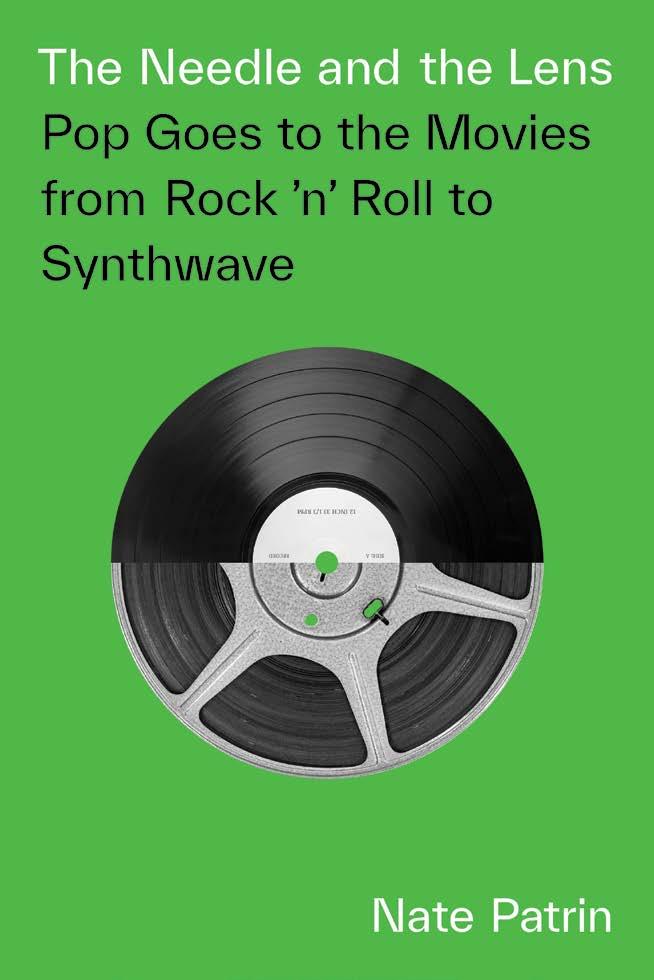
What gives power to these individual moments, and how have they shaped and shifted music history, recasting source material or even stirring wider interest in previously niche pop genres? As Patrin surveys the scene—musical and cinematic— across the decades, expanding into the deeper origins, wider connections, and echoed histories that come into play, The Needle and the Lens offers a new way of seeing, and hearing, these iconic soundtrack moments.
MUSIC/POPULAR CULTURE
$19.95 Paper ISBN: 978-1-5179-1324-3
$19.95 Retail e-book ISBN: 978-1-4529-7031-8
NOVEMBER
264 pages 6 x 9
9 UNIVERSITY OF MINNESOTA PRESS FALL/WINTER 2023–24
Nate Patrin is a longtime music critic whose writing has appeared in dozens of publications, including Pitchfork, Stereogum, Spin, Bandcamp Daily, Red Bull Music Academy, and his hometown Twin Cities’ late alt-weekly City Pages. His first book, Bring That Beat Back: How Sampling Built Hip-Hop (Minnesota, 2020), was named a Best Music Book of 2020 by Kirkus and Rolling Stone
Smoke on the Waterfront
The Northern Waters Smokehaus Cookbook
NORTHERN WATERS SMOKEHAUS
A cultural icon of Lake Superior cuisine shares its story, recipes, and techniques
A port city where shipping, the fur trade, hunting, and fishing—and infamously long, cold winters—have made the preserving and preparing of meat a singular art, Duluth, Minnesota, was uniquely well suited for the Northern Waters Smokehaus when Eric Goerdt launched it in 1998. Fresh off a stint in Sitka, Alaska, where he’d learned a method of smoking fish called kippering, Goerdt set up shop, and soon what had started as a small sandwich counter expanded into a downtown mainstay with a worldwide trade in its signature offerings, all manner of meat and fish smoked and cured on site. A celebration of the Smokehaus’s singular contribution to the region’s cuisine, Smoke on the Waterfront brings two decades of experience to the table, laying out for food-smoking devotees and for home cooks the stories, recipes, and techniques that have made the establishment a beloved fixture of Third Coast culture.
Smoke on the Waterfront presents recipes that take advantage of the natural bounty of Lake Superior’s north shore and capture the flavor of a port city’s old-world charm—all workable with simple equipment, such as kettle grills, allowing home cooks to bring

the delicious flavors of the Northern Waters Smokehaus to their own kitchens. From simple sandwich construction all the way to sausage twisting, these recipes give readers an opportunity to up their game or to savor their own view of the Smokehaus experience: brining, grilling, freezing, pickling, and fermentation; preparing a charcuterie board, with guidance on sausage, confit, rillettes, light butchery, and sourdough; and roasting, smoking, and braising meats.
Whitefish smoked or made into a spread or stock; lake trout curried or stuffed with gremolata; pulled pork Minnesota style, smoked wings, and ribs and kimchi with maple sambal; smoked Polish, Andouille, lamb, and potato sausages; eelpout étouffée, confit duck legs, poultry liver gravy, and pâté; three-day duck poutine, porketta and pasta, braised ruminant, bison pastrami: that’s a sample of the provisions that run from roe and gravy to casseroles, chowder, and ice cream. Featuring beautiful photographs, carefully crafted recipes, and the pithy conversational comments of the restaurant’s veterans, Smoke on the Waterfront evokes the history and the promise of a rich regional culture that endures—and transcends—boundaries.
Northern Waters Smokehaus, in Duluth, Minnesota, has been crafting fine deli goods since 1998, mostly in the basement of a repurposed mattress factory on the shores of Lake Superior. Its staff has grown from five people to more than fifty, cultivating a culture of culinary excellence and experimentation along the way. Beyond being a favorite destination for locals and visitors to northern Minnesota, the Smokehaus ships gourmet smoked fish, charcuterie, and more across the country. These recipes were curated by Mary Tennis, Ned Netzel, and Nic Peloquin, with contributions from Greg Conley and Eric Goerdt. Photographs are by Jacob Swanson, Florencia Matamoros, Stephen Pestalozzi, and Zac Bentz.
COOKBOOKS/REGIONAL
$34.95 Cloth/jacket ISBN: 978-1-5179-1015-0
NOVEMBER
208 pages 101 color plates 7 x 10
10 UNIVERSITY OF MINNESOTA PRESS FALL/WINTER 2023–24
Turkey and Fennel
Casserole
Ingredients
1 smoked turkey breast, cubed
3–4 sweet potatoes, large, diced
2 bulbs fennel, diced
1 yellow onion, diced
2 tablespoons olive oil
1½ cups dry white wine
2 tablespoons cracked black pepper
2 tablespoons rubbed sage or fresh sage

1 sprig of fresh tarragon (or 2 tablespoons dried)
1 cup shredded gruyère


3 tablespoons olive oil
Preheat oven to 350ºF.
Get olive oil hot in a Dutch oven and sauté sweet potatoes over medium heat for 2–3 minutes. Then add the onions and fennel.


Once the onions and fennel have become translucent add the wine, turkey, herbs, and spices. Cover the pot and place in your preheated oven. Allow to cook for 45 minutes.

Uncover and turn the oven up to 400°F and cook for another 10 minutes. Top with gruyère and bake for 5 more minutes until it melts and begins to brown and bubble.

The Switch
An Off and On History of Digital Humans
JASON PUSKAR
From the telegraph to the touchscreen, how the development of binary switching transformed everyday life and changed the shape of human agency
The Switch traces the sudden rise of a technology that has transformed everyday life for billions of people: the binary switch. By chronicling the rapid growth of binary switching since the mid-nineteenth century, Jason Puskar contends that there is no human activity as common today as pushing a button or flipping a switch—the deceptively simple act of turning something on or off. More than a technical history, The Switch offers a cultural and political analysis of how reducing so much human action to binary alternatives has profoundly reshaped modern society.
Analyzing this history, Puskar charts the rapid shift from analog to digital across a range of devices—keyboards, cameras, guns, light switches, computers, game controls, even the “nuclear button”—to understand how

nineteenth-century techniques continue to influence today’s pervasive digital technologies. In contexts that include musical performance, finger counting, machine writing, voting methods, and immersive play, Puskar shows how the switch to switching led to radically new forms of action and thought.
The innovative analysis in The Switch makes clear that binary inputs have altered human agency by making choice instantaneous, effort minimal, and effects more far-reaching than ever. In the process, it concludes, switching also fosters forms of individualism that, though empowering for many, also preserve a legacy of inequality and even domination.


An Off and On History of Digital Humans
Jason Puskar
Puskar is professor of English at the University of Wisconsin, Milwaukee. He is author of Accident Society: Fiction, Collectivity, and the Production of Chance
CULTURAL STUDIES/SCIENCE AND TECHNOLOGY


$34.95 Paper ISBN: 978-1-5179-1540-7
$140.00xx Cloth ISBN: 978-1-5179-1539-1




$34.95 Retail e-book ISBN: 978-1-4529-7033-2
NOVEMBER
400 pages 38 b&w illustrations 12 color plates 7 x 9
12 UNIVERSITY OF MINNESOTA PRESS FALL/WINTER 2023–24
SWITCH THE
Jason
The Cactus Hunters
Desire and Extinction in the Illicit Succulent Trade
JARED D. MARGULIES
THE Cactus Hunters
An exploration of the explosive illegal trade in succulents and the passion that drives it

“The Cactus Hunters takes us into the fascinating world of succulent collecting. Jared D. Margulies skillfully traces the consequential ways in which people and cacti move one another, remaking possibilities for life, desire, wealth, extinction, and more in the process. This book offers a powerful example of the value of close attention to the entangled lives of plants and their people.”
—Thom van Dooren, author of A World in a Shell: Snail Stories for a Time of Extinctions
Cacti and succulents are phenomenally popular worldwide among plant enthusiasts, despite being among the world’s most threatened species. The fervor driving the illegal trade in succulents might also be driving some species to extinction. Delving into the strange world of succulent collecting, The Cactus Hunters takes us to the heart of this conundrum: the mystery of how and why ardent lovers of these plants engage in their illicit trade. This is a world of alluring desires, where collectors and conservationists alike are animated by passions that at times exceed the limits of law.
What inspires the desire for a plant? What kind of satisfaction does it promise? The answer, Jared D. Margulies suspects, might be traced through the roots and workings of the illegal succulent trade—an exploration that traverses the fields of botany and criminology, political ecology and human geography, and psychoanalysis. His globe-spanning inquiry leads Margulies from a spectacular series of succulent heists on a small island off the coast of Mexico to California law enforcement agents infiltrating a smuggling ring in South Korea, from scientists racing to discover new and rare species before poachers find them to a notorious Czech “cacto-explorer” who helped turn a landlocked European country into the epicenter of the illegal succulent trade.
A heady blend of international intrigue, social theory, botanical lore, and ecological study, The Cactus Hunters offers complex insight into species extinction, conservation, and more-than-human care.

Jared D. Margulies
Jared D. Margulies is assistant professor of political ecology in the Department of Geography at the University of Alabama. His work has been published in leading academic journals across the fields of social, cultural, and political geography; political ecology; the conservation social sciences; and environmental humanities.
GEOGRAPHY/ENVIRONMENT
$24.95 Paper ISBN: 978-1-5179-1399-1
$100.00xx Cloth ISBN: 978-1-5179-1398-4
$24.95 Retail e-book ISBN: 978-1-4529-6998-5
NOVEMBER
392 pages 50 b&w illustrations 5 1/2 x 8 1/2
Retail e-book files for this title are screen-reader friendly with images accompanied by short alt text and/or extended descriptions.
13
UNIVERSITY OF MINNESOTA PRESS FALL/WINTER 2023–24
Extinction in the Illicit Succulent Trade
Queer Networks
Ray Johnson’s Correspondence Art
MIRIAM KIENLE
How the queer correspondence art of Ray Johnson disrupted art world conventions and anticipated today’s highly networked culture

"Brilliant and revelatory . . . conclusively demonstrates that Johnson’s work existed in, and interacted with, an intricate web of theoretical, sexual, political, and aesthetic concerns, most of which have never been broached in previous work on the artist. The result is a crucial contribution to thinking about Johnson, postwar culture, and queer politics and aesthetics.”
—Anthony Grudin, author of Warhol's Working Class
“Finally, we have a book-length, deeply researched account of Johnson’s queer ways of making and communicating. Queer Networks establishes Johnson as an inescapably centrifugal figure for the history of queer art.”
—David J. Getsy, author of Queer Behavior
Once regarded as “New York’s most famous unknown artist,” Ray Johnson was a highly visible outlier in the art world, his mail art practice reflecting the changing social relations and politics of queer communities in the 1960s. A vital contribution to the growing scholarship on this enigmatic artist, Queer Networks analyzes how Johnson’s practice sought to undermine the dominant
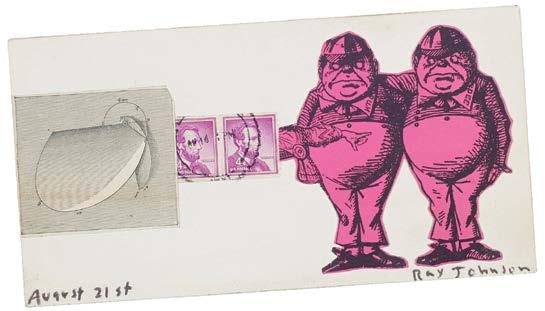
mechanisms of the art market and gallery system in favor of unconventional social connections.
Utilizing the postal service as his primary means of producing and circulating art, Johnson cultivated an international community of friends and collaborators through which he advanced his idiosyncratic body of work. Applying both queer theory and network studies, Miriam Kienle explores how Johnson’s radical correspondence art established new modes of connectivity that fostered queer sensibilities and ran counter to the conventional methods by which artists were expected to develop their reputation.
While Johnson was significantly involved with the Pop, conceptual, and neo-Dada art movements, Queer Networks crucially underscores his resistance to traditional art historical systems of categorization and their emphasis on individual mastery. Highlighting his alternative modes of community building and playful antagonism toward art world protocols, Kienle demonstrates how Ray Johnson’s correspondence art offers new ways of envisioning togetherness in today’s highly commodified and deeply networked world.
Queer Networks
ART HISTORY/MEDIA STUDIES
$34.95 Paper ISBN: 978-1-5179-1163-8
$140.00xx Cloth ISBN: 978-1-5179-1162-1
$34.95 Retail e-book ISBN: 978-1-4529-7027-1
DECEMBER
296 pages 108 b&w illustrations 7 x 9
14 UNIVERSITY OF
PRESS FALL/WINTER 2023–24
MINNESOTA
Miriam Kienle is associate professor of art history in the School of Art and Visual Studies at the University of Kentucky.
Masculinity in Transition
K. ALLISON HAMMER
Locating the roots of toxic masculinity and finding its displacement in unruly culture
“A major intervention into masculinities studies, Masculinity in Transition brilliantly and consistently pushes the field toward a critical understanding of masculinity as a complex gender formation. K. Allison Hammer undertakes nuanced readings of a wide array of texts to offer a new understanding of masculinity and the ways in which it both serves and subverts hegemonic social, sexual, and racial hierarchies.”
—Christopher Breu, author of Hard-Boiled Masculinities
Masculinity in Transition analyzes shifting relationships to masculinity in canonical works of twentieth-century literature and film, as well as in twenty-first-century media, performance, and transgender poetics. Focusing on “toxic masculinity,” which has assumed new valence since 2016, K. Allison Hammer traces its roots to a complex set of ideologies embedded in the histories of settler colonialism, racial capitalism, and political fraternity, and finds that while toxic strains of masculinity are mainly associated with straight, white men, trans and queer masculinities can be implicated in these systems of power.
Hammer argues, however, that these malignant forms of masculinity are not fixed and can be displaced by “unruly alliances”— texts and relationships that reject the nationalisms and gender politics of white male hegemony and perform an urgently needed reimagining of what it means to be masculine. Locating these unruly alliances in the writings, performances, and films of butch lesbians, gay men, cisgender femmes, and trans and nonbinary individuals, Masculinity in Transition works through an archive of works of performance art, trans poetics, Western films and streaming media, global creative responses to HIV/AIDS, and working-class and “white trash” fictions about labor and unionization.

Masculinity in Transition moves the study of masculinity away from an overriding preoccupation with cisnormativity, whiteness, and heteronormativity, and toward a wider and more generative range of embodiments, identifications, and ideologies. Hammer’s bold rethinking of masculinity and its potentially toxic effects lays bare the underlying fragility of normative masculinity.
GENDER AND SEXUALITY/LITERARY CRITICISM
$24.95 Paper ISBN: 978-1-5179-1435-6
$100.00xx Cloth ISBN: 978-1-5179-1434-9
$24.95 Retail e-book ISBN: 978-1-4529-6992-3
OCTOBER
312 pages 19 b&w illustrations 5 1/2 x 8 1/2
Retail e-book files for this title are screen-reader friendly with images accompanied by short alt text and/or extended descriptions.
15
UNIVERSITY OF MINNESOTA PRESS FALL/WINTER 2023–24
K. Allison Hammer is assistant professor and coordinator of women, gender, and sexuality studies at Southern Illinois University.
Sentimental Education
The Story of a Young Man
GUSTAVE FLAUBERT
TRANSLATED BY RAYMOND N. M AC KENZIE
A fresh and vivid translation of Flaubert’s influential bildungsroman
“A perfect picture of the confusion, wrong turns, and bad directions that seem inseparable from growing up.”
—Michael Wood, Lapham’s Quarterly
“Flaubert, among other talents, proves a stunningly scrupulous historical novelist, bringing us a richly textured account of the aspirations, illusions, and defeats of the insurgents.”
 —Peter Brooks, Publishers Weekly
—Peter Brooks, Publishers Weekly
Gustave Flaubert conceived Sentimental Education, his final complete novel, as the history of his own generation, one that failed to fulfill the promise of the Revolution of 1848. Published a few months before the start of the 1870 Franco–Prussian War, it offers both a sweeping panorama of French society over three decades and an intimate bildungsroman of a young man from a small town who arrives in Paris when protests against the monarchy are increasing.
The novel’s protagonist, Frédéric Moreau, alternates between aimlessness and ambition as he searches for a meaningful life through love affairs and republican politics. Flaubert’s
narrative includes scenes of high drama, as scattered protests across Paris swell into revolution, and quiet moments of self-aware romanticism, crafting a story that possesses the sweep and scope of a historical novel combined with deep emotion and scandalous intimacy. Suffused with tragedy and the poignancy of lost chances and wasted lives, Sentimental Education is sharpened by satirical observations of what Flaubert condemned as the Second Empire’s endemic hypocrisy and willful blindness.
This vibrant, new translation by Raymond N. MacKenzie includes an extensive critical introduction and annotations to help the modern reader appreciate Flaubert’s achievement. Sentimental Education intertwines the personal, the intimate, and the subjective with the political, social, and cultural, embedding Frédéric’s story in the larger arc of what Flaubert saw as France’s decline into mediocrity and imbecility in its politics and manners.
Gustave Flaubert (1821–1880), one of France’s leading exponents of literary realism, was born in Rouen. He arrived in Paris in 1840 to study law but soon returned to his hometown, where he largely remained, focused on his writing in the family home in Croisset. Provincial life was the focus of Madame Bovary, but a trip to Egypt and the Middle East gave him inspiration for Salammbô He died at the age of fifty-eight.
Raymond N. MacKenzie is professor of English at the University of St. Thomas in St. Paul, Minnesota. He has translated Balzac’s Lost Souls and Lost Illusions, d’Aurevilly’s Diaboliques, and Stendhal’s Italian Chronicles and Red and Black, all published by the University of Minnesota Press, as well as Flaubert’s Madame Bovary and Zola’s Germinal, a finalist for the PEN Translation Prize.
FICTION
$19.95 Paper ISBN: 978-1-5179-1413-4
$19.95 Retail e-book ISBN: 978-1-4529-7014-1
JANUARY 2024
480 pages 6 x 9
16 UNIVERSITY OF MINNESOTA PRESS FALL/WINTER 2023–24
The Harlequin Eaters
From Food Scraps to Modernism in Nineteenth-Century France



JANET BEIZER
How representations of the preparation, sale, and consumption of leftovers in nineteenth-century urban France link socioeconomic and aesthetic history

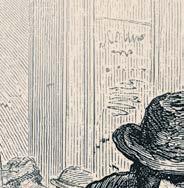
The concept of the “harlequin” refers to the practice of reassembling dinner scraps cleared from the plates of the wealthy to sell, replated, to the poor in nineteenth-century Paris. In The Harlequin Eaters, Janet Beizer investigates how the alimentary harlequin evolved in the nineteenth and early twentieth centuries from the earlier, similarly patchworked Commedia dell’arte Harlequin character and can be used to rethink the entangled place of class, race, and food in the longer history of modernism. By superimposing figurations of the edible harlequin taken from a broad array of popular and canonical novels, newspaper articles, postcard photographs, and lithographs, Beizer shows that what is at stake in nineteenthcentury discourses surrounding this mixed
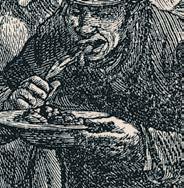
meal are representations not only of food but also of the marginalized people—the “harlequin eaters”—who consume it at this time when a global society is emerging. She reveals the imbrication of kitchen narratives and intellectual–aesthetic practices of thought and art, presenting a way to integrate socioeconomic history with the history of literature and the visual arts. The Harlequin Eaters also offers fascinating background to today’s problems of food inequity as it unpacks stories of the for-profit recycling of excess food across class and race divisions.
is author of Thinking through the Mothers: Reimagining Women’s Biographies; Ventriloquized Bodies: Narratives of Hysteria in Nineteenth-Century France; and Family Plots: Balzac’s Narrative Generations

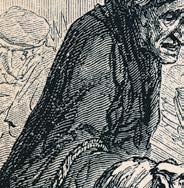

CULTURAL STUDIES/FOOD STUDIES
$29.95 Paper ISBN: 978-1-5179-1590-2
$120.00xx Cloth ISBN: 978-1-5179-1589-6

























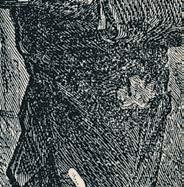






$29.95 Retail e-book ISBN: 978-1-4529-7046-2
JANUARY 2024













352 pages 24 b&w illustrations 39 color plates


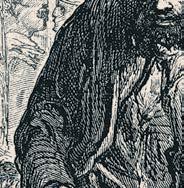
7 x 10





17
UNIVERSITY OF MINNESOTA PRESS FALL/WINTER 2023–24
Janet Beizer is C. Douglas Dillon Professor of the Civilization of France at Harvard University. She
Dreaming Our Futures
Ojibwe and O čhéthi Šakówi ŋ Artists and Knowledge Keepers
BRENDA J. CHILD AND HOWARD ORANSKY, EDITORS
A beautiful collection of the art and life stories of regional Native painters
Dreaming Our Futures features twenty-eight Native painters, primarily Dakota and Ojibwe, who live in the Midwest or have family or tribal connections here. The artists represent a range of generations, professional experience, and genres—including traditional, historical, contemporary, and conceptual themes. The volume presents full-color reproductions of art by each painter, along with bilingual artist statements, biographies, and essays on the representation of Indigenous people in historical context; storytelling and the creative process; and scholarship on several specific artists.
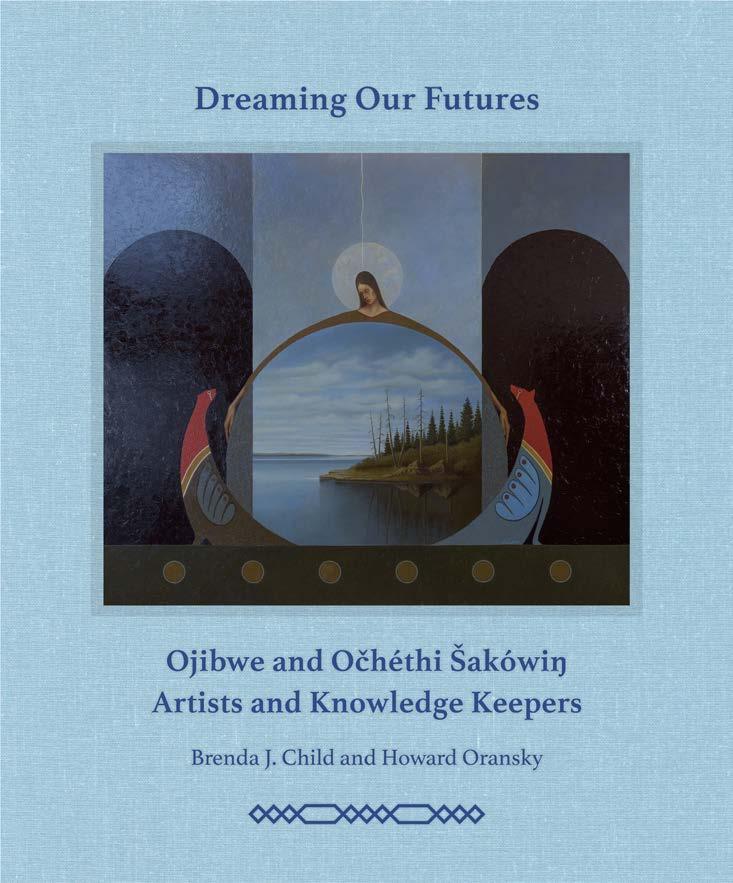
The renowned Grand Portage Ojibwe artist George Morrison declared, “I have never tried to prove that I was Indian through my art. Yet, there may remain deeply hidden some remote suggestion of the rock whence I was hewn, the preoccupation of the textural surface, the mystery of the structural and organic element, the enigma of the horizon, or the color of the wind.” The variety of images painted by this gathering of artists demonstrates that the
strong heritage and powerful traditions of Indigenous painting remain vital and dynamic today.
Dreaming Our Futures accompanies an exhibition at the Katherine E. Nash Gallery in 2024, produced in association with the George Morrison Center for Indigenous Arts at the University of Minnesota.
Artists: Frank Big Bear, David Bradley, Awanigiizhik Bruce, Andrea Carlson, Avis Charley, Fern Cloud, Michelle DeFoe, Jim Denomie, Patrick DesJarlait, Sam English, Carl Gawboy, Joe Geshick, Sylvia Houle, Oscar Howe, George Morrison, Steven Premo, Rabbett Before Horses Strickland, Cole Redhorse Taylor, Roy Thomas, Jonathan Thunder, Thomasina Topbear, Moira Villiard, Kathleen Wall, Star WallowingBull, Dyani White Hawk, Bobby Dues Wilson, Wanbli Mayasleca/ Francis J. Yellow, Leah H. Yellowbird, Holly Young.
Contributors: Patricia Marroquin Norby, Metropolitan Museum of Art; Christopher Pexa, U of Minnesota; Mona Susan Power; Diane Wilson.
Brenda J. Child (Red Lake Ojibwe) is Northrop Professor of American Studies at the University of Minnesota and was recently named a Guggenheim Fellow. She is author of Holding Our World Together: Ojibwe Women and the Survival of Community and My Grandfather’s Knocking Sticks: Ojibwe Family Life and Labor on the Reservation, winner of the American Indian Book Award.
Howard Oransky is director of the Katherine E. Nash Gallery at the University of Minnesota, Twin Cities. His previous exhibition catalogs include A Tender Spirit, A Vital Form: Arlene Burke Morgan & Clarence Morgan; A Picture Gallery of the Soul; and Covered in Time and History: The Films of Ana Mendieta. He is cofounder of Form + Content Gallery in Minneapolis.
ART/NATIVE AMERICAN STUDIES/REGIONAL $34.95 Lithocase ISBN: 978-1-5179-1497-4
JANUARY 2024
168 pages 20 b&w illustrations 100 color plates 9 3/4 x 11 3/4
Distributed for Katherine E. Nash Gallery, University of Minnesota
18 UNIVERSITY OF MINNESOTA PRESS FALL/WINTER 2023–24
F. Scott Fitzgerald
A Composite Biography
NIKLAS SALMOSE AND DAVID RENNIE, EDITORS
A comprehensive study of the life of F. Scott Fitzgerald, related in two-year chapters by twenty-three leading writers on the Jazz Age author
“There never was a good biography of a novelist,” F. Scott Fitzgerald wrote in The Crack-Up. “There couldn’t be. He is too many people, if he’s any good.” Fitzgerald, a good novelist by any measure, has tested this challenge to the biographer’s art. A new star illuminating the literary scene; a chronicler of the Jazz Age in all its brilliance and tarnish; a romantic symbol of the American century; an acute observer of society’s best and worst, and of his own star-crossed career; a midlife burnout at forty-four, leaving an unfinished masterpiece in his wake—he was a man of many aspects, a writer whose complexity and multitudes this composite biography finally aptly portrays.
Bringing together twenty-three leading writers and scholars on Fitzgerald, each focusing on two years of his life, this volume takes its cue from Henry James’s remark, cited by preeminent Fitzgerald biographer Scott Donaldson: “The whole of anything is never told; you can only take what groups together.”
F. Scott Fitzgerald: A Composite Biography presents a new way of “grouping together” biographical material and perspectives, considering from various angles the author's best-known works as well as understudied writings, including neglected stories and forays into autobiography such as “What I Think and Feel at 25” and “How to Live on $36,000 a Year.” This remarkable study of F. Scott Fitzgerald, by twenty-three experts, reflects the multifaceted whole of a “life in many parts” in new and revelatory ways.

Contributors: Jade Broughton Adams; Ronald Berman; William Blazek, Liverpool Hope U; Elisabeth Bouzonviller, Jean Monnet U; Jackson Bryer, U of Maryland; Kirk Curnutt, Troy U; Catherine Delesalle-Nancey, U Jean Moulin Lyon 3; Scott Donaldson; Kayla Forrest; Marie-Agnès Gay, U Jean Moulin Lyon 3; Joel Kabot, U of Maryland, Baltimore; Sara Kosiba; Arne Lunde, U of California, Los Angeles; Bryant Mangum, Virginia Commonwealth U; Martina Mastandrea; Philip McGowan, Queen’s U Belfast; David Page; Walter Raubicheck, Pace U; Ross Tangedal, U of Wisconsin–Stevens Point; Helen Turner, Linnaeus U; James L. W. West III, Pennsylvania State U.
Niklas Salmose is professor of English literature at Linnaeus University and an executive board member of the F. Scott Fitzgerald Society. He has translated Fitzgerald’s writing into Swedish and is editing a new edition of The Last Tycoon for Oxford Classics.
David Rennie, a teacher of English at St. Machar Academy, Aberdeen, Scotland, is author of American Writers and World War I and editor of Scottish Literature and World War I
BIOGRAPHY/REGIONAL
$29.95 Cloth/jacket ISBN: 978-1-5179-1585-8
$29.95 Retail e-book ISBN: 978-1-4529-7000-4
JANUARY 2024
448 pages 78 b&w illustrations 6 1/8 x 9 1/4
19
UNIVERSITY OF MINNESOTA PRESS FALL/WINTER 2023–24
A Wild Path
DOUGLAS WOOD
A Wild Path
A soul-satisfying journey through the wilderness that uncovers hope, healing, and the abiding grace of wild things
“There’s a world between these covers—a world of truth, grace, and beauty where gravity keeps your feet on the ground and levity lifts your spirit high. This world exists because Douglas Wood has the experience and the gifts required to bring it to life, giving his readers a chance to dwell in it for a while and return refreshed, even healed, to their own lives.”
—Parker J. Palmer, author of On the Brink of Everything
“The magic and awe of the natural world, childhood challenges and love of family, and the redemption of the wilderness are all shared by Douglas Wood in his new collection, A Wild Path. You’ll find yourself laughing, crying, and breathing in the forest air while reading Doug’s stories. You might even discover yourself in these essays, through his gentle, understanding, and insightful words.”
—Patsy Mogush, president, Listening Point Foundation
A Wild Path is author Douglas Wood’s highly anticipated followup to the critically acclaimed memoir Deep Woods, Wild Waters. He again leads readers along a meditative path through a wilderness of many dimensions—from the lakes and islands of his beloved Canoe Country to rugged ocean coasts to a mountain

chasm, from camping on the Canadian Shield to listening to the soft strains of Beethoven in the pines, and from the pain of childhood wounds to appreciation for a life rich with nature.
With the generosity and compassion of a good wilderness guide, Douglas Wood welcomes readers to accompany him as he navigates his life-path from struggling student and “worst reader in the class” to prolific writer and bestselling author. He offers courage and hope to those who feel different or left behind, and he shares how he found, through the counsel of rocks, trees, and waters, his own way toward joy and wonder and an unshakable sense of belonging.
Exploring the meanings of myriad outdoor experiences, Wood seeks to understand the importance and existence of beauty, the emotional poignancy of a wilderness sunset, and the realization of dreams, while also honoring his outdoor and literary mentors, including Sigurd Olson and Aldo Leopold. Traveling across continents, over oceans, and through the landscape of time, A Wild Path ranges from solitary shorelines of introspection to peaks of triumph, finding rest and tranquility in a simple cup of jasmine tea, sipped by a campfire under the stars.
Douglas Wood is an author, artist, musician, educator, wilderness guide, and creator of thirty-nine books for children and adults, including Deep Woods, Wild Waters (Minnesota, 2017). His first book, Old Turtle, was hailed an “instant classic.” His other works, including the New York Times bestseller Grandad’s Prayers of the Earth and his humorous Can’t Do series, have received the American Booksellers Book of the Year Award, the Christopher Medal, Parents’ Choice Award, International Reading Association Book of the Year Award, Smithsonian Notable Books for Children Award, Storytelling World Award, and the Lifetime Achievement Award from the Minnesota Association for Environmental Education. He lives with his family in a log cabin on the Mississippi River in Minnesota.
MEMOIR/NATURE
$24.95 Cloth/jacket ISBN: 978-1-5179-0594-1
$24.95 Retail e-book ISBN: 978-1-4529-7042-4
DECEMBER
224 pages 17 b&w illustrations 5 1/2 x 8 1/2
20 UNIVERSITY OF MINNESOTA PRESS FALL/WINTER 2023–24
DOUGLAS WOOD
Impermanence
Life and Loss on Superior’s South Shore
SUE LEAF
A personal journey through the everchanging natural and cultural history of Lake Superior’s South Shore

“Sue Leaf's Impermanence is a fascinating combination of personal memoir, natural history, and cultural history. She writes beautifully about Lake Superior's South Shore and its forests, wetlands, and peoples. Her reflections on her family cabin on Lake Superior, and her grief about its potential loss from bluff erosion due to climate change, are particularly evocative. Anyone who loves Lake Superior will find this book rewarding.”
—Nancy Langston, author of Sustaining Lake Superior and Climate Ghosts
Lake Superior’s South Shore is as malleable as it is enduring, its red sandstone cliffs, clay bluffs, and golden sand beaches reshaped by winds and water from season to season— and sometimes from one hour to the next. Generations of people have inhabited the South Shore, harvesting the forests and fish, mining copper, altering the land for pleasure and profit, for better or worse. In Impermanence, author Sue Leaf explores the natural and human histories that make the South Shore what it is, from the gritty port city of Superior, Wisconsin, to the shipping locks at Sault Ste. Marie, Michigan.
For Leaf, what began as a bicycling adventure on the coast of Lake Superior in 1977 turned into a lifelong connection with the area, and her experience, not least as owner of a rustic cabin on a rapidly eroding lakeside cliff, imbues these essays with a passionate sense of place and an abiding curiosity about its past and precarious future. As waves slowly consume the shoreline where her family has spent countless summers, Leaf is forced to confront the complexity of loving a place that all too quickly is being reclaimed by the great lake.
Impermanence is a journey through the South Shore’s story, from the early days of the Anishinaabe and fur traders through the heyday of commercial fishing, lumber camps, and copper mining on the Keweenaw Peninsula to the awakening of the Northland to the perils and consequences of plundering its natural splendor. Part memoir, part travelogue, part natural and cultural history, Leaf’s love letter to Lake Superior’s South Shore is an invitation to see this liminal world in all its seasons and guises, to appreciate its ageless, ever-changing wonders and intimate charms.
IMPERMANENCE
LIFE AND LOSS ON SUPERIOR’S SOUTH SHORE
Sue Leaf is author of The Bullhead Queen: A Year on Pioneer Lake; A Love Affair with Birds: The Life of Thomas Sadler Roberts; Portage: A Family, a Canoe, and the Search for the Good Life; and 2021 Minnesota Book Award winner Minnesota’s Geologist: The Life of Newton Horace Winchell, all published by Minnesota. Trained as a zoologist, she writes about environmental and natural history. Her family has owned a cabin outside Port Wing, Wisconsin, on Lake Superior’s South Shore for thirty-five years.
NATURAL HISTORY/MEMOIR
$19.95 Paper ISBN: 978-1-5179-1525-4
$19.95 Retail e-book ISBN: 978-1-4529-7044-8
JANUARY 2024
256 pages 5 b&w illustrations 1 map 5 1/2 x 8 1/4
21
UNIVERSITY OF MINNESOTA PRESS FALL/WINTER 2023–24 SUE LEAF
Gunflint Falling

Blowdown in the Boundary Waters
CARY J. GRIFFITH
Stories from survivors of the Boundary Waters Canoe Area Wilderness’s epochal weather disaster
On July 4, 1999, in the Boundary Waters Canoe Area Wilderness (BWCAW), a bizarre confluence of meteorological events resulted in the most damaging blowdown in the region’s history. Originating over the Dakotas, the midsummer windstorm developed amid unusually high heat and water-saturated forests and moved steadily east, bearing down on Fargo, North Dakota, and damaging land as it crossed the Minnesota border. Gunflint Falling tells the story of this devastating storm from the perspectives of those who were on the ground before, during, and after the catastrophic event—from first-time visitors to the north woods to returning paddlers to Forest Service Rangers.
The pre-dawn forecasts from the National Weather Service in Duluth for that Sunday of the holiday weekend predicted the day would be “warm and humid. Partly sunny with a thirty percent chance of thunderstorms.” But as the afternoon and evening settled over the Boundary Waters, the first eyewitness accounts began to tell a dramatic and terrifying story. Five friends camping on Lake
Polly watched in wonder as the sky turned green and the winds began to whip. They scrambled to pull canoes on shore and secure tarps when a tree snapped and struck one of them in the head, rendering her unconscious. Three women enjoying their last day of a camping trip near the end of the Gunflint Trail took shelter in their tent as winds increased. Water drenched the nylon walls as trees crashed around them, one flattening the tent and pinning a woman beneath its weight. A family vacationing at their cabin dodged falling trees and strained against straight-line winds as they sprinted from the cabin to the safest place they knew: a crawl space underneath it. They watched in awe as trees snapped and toppled, their twisted root balls torn out of the water-logged earth—as they prayed their cabin would hold.
By the time the storm began to subside, falling trees had injured approximately sixty people, and most needed to be medevacked to safety. Amazingly, no one died. The historic storm laid down timber that would later blaze in the Ham Lake fire of 2007, ultimately reshaping the region’s forests in ways we have yet to fully understand.
Cary J. Griffith has written three nonfiction books, including Lost in the Wild, Opening Goliath, and Gunflint Burning: Fire in the Boundary Waters (Minnesota, 2018). His novels include Wolf Kill, Cougar Claw, and Killing Monarchs. He is the recipient of a Minnesota Book Award and a Midwest Book Award.
NATURAL HISTORY/REGIONAL
$25.95 Cloth/jacket ISBN: 978-1-5179-1556-8
$25.95 Retail e-book ISBN: 978-1-4529-7023-3
DECEMBER
312 pages 13 maps 6 x 9
22 UNIVERSITY OF
PRESS
2023–24
MINNESOTA
FALL/WINTER
Rafferty’s Last Case
A Minnesota Mystery Featuring Sherlock Holmes
LARRY MILLETT
Now in paperback, in this ninth Minnesota mystery Shadwell Rafferty, with the inimitable Sherlock Holmes, may have solved his own murder
“This double mystery takes readers to every corner of St. Paul.”

Pioneer Press




“Richly woven and sprinkled with moments of humor and pathos, Rafferty’s Last Case is maybe his best case. The genius of Larry Millett's adventures is how he weaves local history, culture, personalities, architecture, and the Holmes canon together in a way that finds me always asking for more. His final account of the late, great Shadwell Rafferty hooked me from the start. An ultimate triumph!”
—Tim Johnson, curator of the Sherlock Holmes Collections, University of Minnesota Libraries
"One can only hope that, while this mystery is called Rafferty’s Last Case, it isn’t Larry Millett’s last book. In this engrossing tale, Sherlock Holmes, with the help of Watson and the notes left behind by Rafferty, solves a very complicated case of three murders among the upper class of St. Paul. The twists and turns are amazing and shocking until the case is solved with a wonderful flourish. Start reading and hang on for the ride!"
—Mary Logue, author of The Streel
"Murder, blackmail, and the foulest corruption have turned 1928 St. Paul, Minnesota, into a frozen Gomorrah. Even the world’s greatest consulting detective may have met his match when he wades into the icy muck hunting the killer of an old friend in Larry Millett’s latest Sherlock Holmes American adventure. Propelled by a hair-raising plot, rich in period detail, and crawling with intriguing characters, Rafferty’s Last Case is a terrific read."
—W. A. Winter, author of The Secret Lives of Dentists
When news of Shadwell Rafferty’s death reaches Sherlock Holmes, the world’s most famous detective and his redoubtable companion Watson rush to Minnesota to hunt for their friend’s killer. Set amid the glittering society and sordid underworld of 1928 St. Paul, Larry Millett’s ninth Shadwell Rafferty mystery takes readers through the serpentine twists of Rafferty’s fatal investigation.
LARRY MILLETT
Larry Millett is the author of twenty books, including nine mystery novels featuring Sherlock Holmes and St. Paul detective Shadwell Rafferty. A longtime reporter and architecture critic for the St. Paul Pioneer Press, he has also written numerous books on architecture, including Heart of St. Paul: A History of the Pioneer and Endicott Buildings; Metropolitan Dreams: The Scandalous Rise and Stunning Fall of a Minneapolis Masterpiece; Once There Were Castles; and Minnesota Modern, winner of a Minnesota Book Award (all from Minnesota).
FICTION/MYSTERY
$14.95 Paper ISBN: 978-1-5179-1312-0


$14.95 Retail e-book ISBN: 978-1-4529-6698-4
SEPTEMBER
384 pages 5 1/2 x 8 1/4
23
UNIVERSITY OF MINNESOTA PRESS FALL/WINTER 2023–24
A MINNESOTA MYSTERY featuring SHERLOCK HOLMES
NOW IN PAPER
Horror in Architecture
The Reanimated Edition
JOSHUA COMAROFF AND ONG KER-SHING
A new edition of this extensive visual analysis of horror tropes and their architectural analogues
“Deeply researched, packed with detail, and bold in scope and imagination, this intriguing book is ultimately about temporality and culture. It brings an impressive array of sources to bear on the future-present and the future-past as key categories of political and aesthetic critique.”
—Achille Mbembe, philosopher, author of On the Postcolony
Horror in Architecture presents an unflinching look at how horror genre tropes manifest in the built environment. Spanning the realms of art, design, literature, and film, this newly revised and expanded edition compiles examples from all areas of popular culture to form a visual anthology of the architectural uncanny.
Rooted in the Romantic and Gothic treatment of horror as a serious aesthetic category, Horror in Architecture establishes incisive links between contemporary horror media and its parallel traits found in various architectural designs. Through chapters dedicated to
distorted and monstrous buildings, abandoned spaces, extremes of scale, and other structural peculiarities, and featuring new essays on insurgent natures, blobs, and architectural puppets, this volume brings together diverse architectural anomalies and shows how their unsettling effects deepen our fascination with the unreal.

Intended for both horror fans and students of visual culture, Horror in Architecture turns a unique lens on the relationship between the human body and the artificial landscapes it inhabits. Extensively illustrated with photographs, film stills, and diagrams, this book retrieves horror from the cultural fringes and demonstrates how its attributes permeate the modern condition and the material world.
Ong Ker-Shing is associate professor in practice in the Department of Architecture at National University of Singapore.
ARCHITECTURE/VISUAL CULTURE
$24.95 Paper ISBN: 978-1-5179-1484-4
$24.95 Retail e-book ISBN: 978-1-4529-7025-7
FEBRUARY 2024
264 pages 142 b&w illustrations 7 x 9
24 UNIVERSITY OF MINNESOTA PRESS FALL/WINTER 2023–24
Joshua Comaroff is assistant professor in the urban studies program at Yale-NUS College in Singapore.
NEW EDITION
The Palace of the Snow Queen
Winter Travels in Lapland and Sápmi BARBARA SJOHOLM

THE PALACE OF THE SNOW QUEEN
An exploration of the winter wonders and entangled histories of Scandinavia’s northernmost landscapes—now back in print with a new afterword by the author
“A captivating homage to the frozen far North and the Sámi.”
—Booklist
“An enticing entrée for those in search of extreme weather in a scenic clime.”
—Kirkus Reviews


























































































































































































































































“Sjoholm maintains a keen eye for observation, leaving romanticism behind, while still indulging in the swooning beauty of the far North.”
—Seattle Times
After many years of travel in the Nordic countries—usually preferring to visit during the warmer months—Barbara Sjoholm found herself drawn to Lapland and Sápmi one winter just as mørketid, the dark time, set in. What ensued was a wide-ranging journey that eventually spanned three winters, captivatingly recounted in The Palace of the Snow Queen
From observing the annual construction of the Ice Hotel in Jukkasjärvi, Sweden, to crossing the storied Finnmark Plateau in
Norway, to attending a Sámi film festival in Finland, Sjoholm dives deep into the rich traditions and vibrant creative communities of the North. She writes of past travelers to Lapland and contemporary tourists in Sápmi, as well as of her encounters with Indigenous reindeer herders, activists, and changemakers. Her new afterword bears witness to the perseverance of the Sámi in the face of tourism, development, and climate change.
Written with keen insight and humor, The Palace of the Snow Queen is a vivid account of Sjoholm’s adventures and a timely investigation of how ice and snow shape our imaginations and create a vision that continues to draw visitors to the North.
BARBARA SJOHOLM
Barbara Sjoholm is a writer and translator of Danish and Norwegian literature. Her translations include By the Fire: Sami Folktales and Legends (Minnesota, 2019), and she is author of Black Fox: A Life of Emilie Demant Hatt, Artist and Ethnographer and From Lapland to Sápmi: Collecting and Returning Sámi Craft and Culture (Minnesota, 2022). She lives on the Olympic Peninsula in Washington State.
MEMOIR/TRAVEL
$18.95 Paper ISBN: 978-1-5179-1514-8
$18.95 Retail e-book ISBN: 978-1-4529-7072-1
OCTOBER
352 pages 1 map 5 1/2 x 9
25
UNIVERSITY OF MINNESOTA PRESS FALL/WINTER 2023–24
“An exquisite book.” —Vendela Vida
Winter Travels in Lapland and Sápmi
NEW EDITION
The Last Bookseller
A Life in the Rare Book Trade
GARY GOODMAN
The King of Skid Row
John Bacich and the Twilight Years of Old Minneapolis
JAMES ELI SHIFFER
A wry, unvarnished chronicle of a career in the rare book trade— now in paperback
“Highly recommended, partly for Goodman’s portrait of a lost world, but also for its colorful dramatis personae.”
—Michael Dirda, The Washington Post
“At turns poignant, sharp, and laugh-out-loud funny, this memoir walks the fine line between informative and wildly entertaining.”
—Patrick Hicks, author of The Commandant of Lubizec and In the Shadow of Dora
When Gary Goodman wandered into a run-down, used-book shop that was going out of business in East St. Paul in 1982, he had no idea the visit would change his life. In The Last Bookseller Goodman describes his sometimes desperate, sometimes hilarious career as a used and rare book dealer in Minnesota—the early struggles, the travels to estate sales and book fairs, the remarkable finds, and the bibliophiles, forgers, book thieves, and book hoarders he meets along the way. The Last Bookseller offers an ultimately poignant account of the used and rare book business during its final Golden Age.

Gary Goodman is a semi-retired rare book dealer who lives in Stillwater, Minnesota. He is coauthor of The Stillwater Booktown Times and The Secret History of Golf in Scotland
MEMOIR
$14.95 Paper ISBN: 978-1-5179-1661-9
$14.95 Retail e-book ISBN: 978-1-4529-6691-5
OCTOBER
200 pages 18 b&w illustrations 5 3/8 x 8 1/4
The story of a much different Minneapolis, through the words and photographs of one of its most colorful characters—now in paperback
“Shiffer vividly evokes the neighborhood at its violent and drunken peak in this vivid and fascinating account of a bygone era.”
—City Pages
“The King of Skid Row makes a valuable contribution to our understanding of urban history in the Midwest.”
—Middle West Review
Following John Bacich, who documented the last days of downtown Minneapolis’s Skid Row neighborhood in the 1950s, The King of Skid Row recreates the violent, alcohol-soaked history of an area of the city now completely redesigned and developed, transformed dramatically from its gritty past.
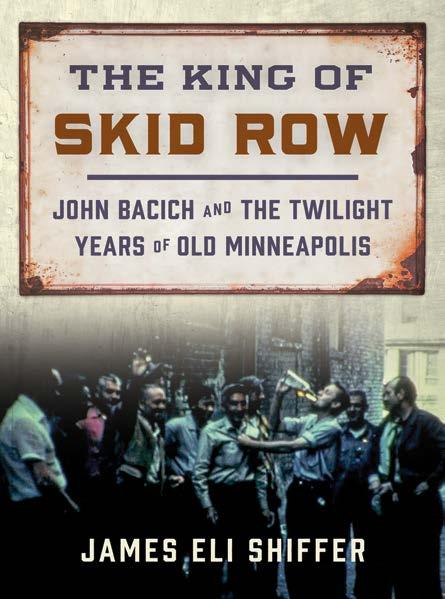
James Eli Shiffer has been a professional journalist for thirty years and is an editor at the Star Tribune in Minneapolis. In 2010, he partnered with Ewen Media to create Rubbed Out, a multimedia history of the murder of a journalist in Minneapolis in 1945. He was a member of the Star Tribune team whose coverage of the killing of George Floyd and subsequent civil unrest was awarded the Pulitzer Prize for breaking news.
MINNESOTA HISTORY
$16.95 Paper ISBN: 978-1-5179-1659-6
$16.95 Retail e-book ISBN: 978-1-4529-5019-8
OCTOBER
192 pages 57 b&w illustrations 2 maps 6 x 8
UNIVERSITY OF MINNESOTA PRESS FALL/WINTER 2023–24 26 NOW IN PAPER NOW IN PAPER
The Ski Jumpers A Novel
PETER GEYE
THE
Ski Jumpers A Novel
Now in paperback: a writer and former ski jumper facing a terminal diagnosis takes one more leap—into a past of soaring flights and broken family bonds
“The delicate balance of family dynamics and the unshakable grip that the past holds on the present are center stage in the heartfelt latest from Geye.”
—Publishers Weekly
“Peter Geye writes full-hearted novels made for winter, and The Ski Jumpers is his best to date.”
—Leif Enger, author of Virgil Wander
“Geye’s tender, patient storytelling, exhilarating tension, and indelibly Midwestern characters make The Ski Jumpers unforgettable.”
—J. Ryan Stradal, author of The Lager Queen of Minnesota
"Like its ski jumping protagonists, this family saga takes flight with a hammering heart and soars through questions of debt, failure, courage, and reconciliation. It's both distinctly Minnesotan and hugely humane . . . I was deeply moved.”
—Kawai Strong Washburn, author of Sharks in the Time of Saviors
The dream of ski jumping haunts Jon Bargaard. In a bravura performance, Peter Geye follows Jon deep into the past he tried so hard to leave behind, telling the story he spent his life escaping. Traveling back and forth in time, Jon tells his family’s story—perhaps his last chance to share it—to his beloved wife Ingrid, circling ever closer to the truth about long-ago events and his own part in them, and revealing the perhaps unforgivable violence done to the bond between two brothers.
As thrilling as those soaring flights, as precarious as the Bargaard family’s complicated love, as tender as Jon’s backward gaze while disease takes him inexorably forward, Geye’s gorgeous prose brings two brothers to the ultimate choice: each other, or the secrets they’ve held tightly for so long.
PETER GEYE
Peter Geye is author of the award-winning novels
Safe from the Sea, The Lighthouse Road, Wintering (winner of the Minnesota Book Award), and Northernmost. Born and raised in Minneapolis, he continues to live there with his family.

FICTION
$17.95 Paper ISBN: 978-1-5179-1350-2
$17.95 Retail e-book ISBN: 978-1-4529-6784-4
SEPTEMBER
408 pages 5 1/2 x 8 1/4 NAM
27
UNIVERSITY OF MINNESOTA PRESS FALL/WINTER 2023–24
Author of Northernmost
NOW IN PAPER
Hermes I Communication
MICHEL SERRES
TRANSLATED BY LOUISE BURCHILL
INTRODUCTION BY PAUL A. HARRIS
Michel Serres
For the first time in English, the introductory volume in a major French philosopher’s groundbreaking series of poetic transdisciplinary works
Michel Serres is recognized as one of the giants of postwar French philosophy of knowledge, along with Gilles Deleuze, Jacques Derrida, Michel Foucault, and Gilbert Simondon. His early five-volume series
Hermes, which appeared in the 1960s and 1970s, was an intellectual supernova in its proposition that culture and science shared the same mythic and narrative structures. Hermes I: Communication marks the start of a major publishing endeavor to introduce this foundational series into English.
Building on the figure of the Greek god Hermes, who presides over the realms of communication and interpretation, Hermes I embarks on a reflection concerning the history of mathematics via Descartes and Leibniz and culminates by way of a Bachelardian logoanalytic reading of Homer, Dumas, Molière, Verne, and the story of Cinderella.
We observe a singular poetic philosopher seeking to bridge the gap between the liberal arts and the sciences through a profound mathematical and poetic fable regarding information theory, history, and art, establishing a new way to think about the production of knowledge during the late twentieth century. In these pages, students and scholars of philosophy will discover an extraordinary project of thought as vital to critical reflection today as it was fifty years ago.
HERMES I Communication
Michel Serres (1930–2019) was author of more than sixty books, including Biogea, Variations on the Body, and The Parasite (all published in translation by Minnesota). He is widely known for his poetic prose and interdisciplinary form of thought.
Louise Burchill is translator of three books by Alain Badiou, including Deleuze: The Clamor of Being, and cotranslator of Évelyne Grossman's The Anguish of Thought (both published by Minnesota).
Paul A. Harris is professor of English at Loyola Marymount University. He is coauthor of Contemporary Viewing Stone Display
PHILOSOPHY/THEORY
$30.00x Paper ISBN: 978-0-8166-7883-9
$120.00xx Cloth ISBN: 978-0-8166-7882-2
$30.00 Retail e-book ISBN: 978-1-4529-7002-8
DECEMBER
360 pages 8 b&w illustrations 6 x 9
Posthumanities Series
28 UNIVERSITY OF MINNESOTA PRESS FALL/WINTER 2023–24
INT R OD U CTIO N BY P A U L A. HARRIS T R ANSL A TED BY L O UISE B UR C HILL
The Affect Lab
The History and Limits of Measuring Emotion





GRANT BOLLMER



Examines how our understanding of emotion is shaped by the devices we use to measure it
Since the late nineteenth century, psychologists have used technological forms of media to measure and analyze emotion. In The Affect Lab, Grant Bollmer examines the use of measurement tools such as electrical shocks, photography, video, and the electroencephalograph to argue that research on emotions has confused the physiology of emotion with the tools that define its inscription.
Bollmer shows that the psychological definitions of emotion have long been directly shaped by the physical qualities of the devices used in laboratory research. To investigate these devices, The Affect Lab examines four technologies related to the history of psychology in North America: spiritualist toys at Harvard University, serial photography in early American psychological laboratories, experiments on “psychopaths”
performed with an instrument called an Offner Dynograph, and the development of the “electropsychometer,” or “E-Meter,” by Volney Mathison and L. Ron Hubbard.
Challenging the large body of humanities research surrounding affect theory, The Affect Lab identifies an understudied problem in formulations of affect: how affect is a construction inseparable from the techniques and devices used to identify and measure it. Ultimately, Bollmer offers a new critique of affect and affect theory, demonstrating how deferrals to psychology and neuroscience in contemporary theory and philosophy neglect the material of experimental, scientific research.
The History and Limits of Measuring Emotion AFFECT



The Lab
Grant Bollmer is associate professor of media studies at North Carolina State University and honorary senior lecturer of digital media at the University of Queensland. He is author of Inhuman Networks: Social Media and the Archaeology of Connection; Theorizing Digital Cultures; and Materialist Media Theory
SCIENCE AND TECHNOLOGY STUDIES/ PSYCHOLOGY
$28.00x Paper ISBN: 978-1-5179-1546-9
$112.00xx Cloth ISBN: 978-1-5179-1545-2
$28.00 Retail e-book ISBN: 978-1-4529-6981-7
AUGUST

304 pages 45 b&w illustrations 5 1/2 x 8 1/2
Retail e-book files for this title are screen-reader friendly with images accompanied by short alt text and/or extended descriptions.
29
UNIVERSITY OF MINNESOTA PRESS FALL/WINTER 2023–24
Grant Bollmer
Estado Vegetal
Performance and Plant-Thinking
GIOVANNI ALOI, EDITOR
Interdisciplinary essays on Manuela Infante’s award-winning play explore the relationship between critical plant studies and performance art in the Anthropocene
Since its first staging in 2016, Estado Vegetal, Manuela Infante’s riveting piece of experimental performance art, has expanded philosophical thinking into a fully-fledged artistic inquiry of nonanthropocentric being. Through Infante’s polyvocal monologue, acted with impetus by Marcela Salinas, plants are charged with an agency capable of uprooting culturally grounded conceptions of the world in the face of incommensurable trauma and loss.
This first book dedicated to Infante’s plantfocused performance features eight essays by scholars, poets, and artists whose practices draw from research fields as disparate as new materialism, anthropogenic feminism, queer studies, and speculative realism. Including an interview with Infante, the full playscript, and stills from the performance, Estado Vegetal: Performance and Plant-Thinking reveals the roles that plants in art can play in productively reconfiguring human–nonhuman relations within current anthropogenic perspectives.
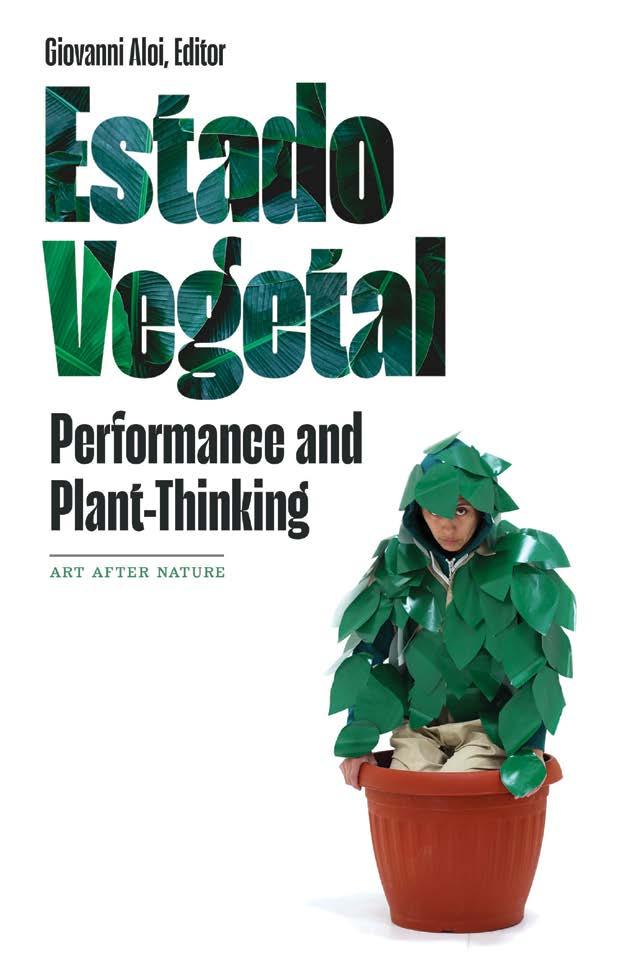
Infante’s performance is a perfect case study and reference point for anyone interested in exploring the complexities of plant-thinking through alternative and experimental avenues. Furthermore, this book is at once a critical plant studies primer and an artistic problematization of the philosophical questions that have been central to the latest multidisciplinary discussions on plant-being.
Contributors: Maaike Bleeker, Utrecht U; Lucy Cotter, Portland State U; Prudence Gibson, UNSW Sydney; Michael Marder, U of the Basque Country; Dawn Sanders, U of Gothenburg; Catriona Sandilands, York U; Sibila Sotomayor Van Rysseghem, colectivo LASTESIS; Mandy-Suzanne Wong.
Giovanni Aloi teaches art history, theory, and criticism at the School of the Art Institute of Chicago. He is author or editor of many books on the nonhuman and art, including Botanical Speculations: Plants in Contemporary Art; Why Look at Plants? The Botanical Emergence in Contemporary Art; and Lucian Freud Herbarium
DRAMA AND PERFORMANCE STUDIES/ PHILOSOPHY
$25.00x Paper ISBN: 978-1-5179-1308-3
$100.00xx Cloth ISBN: 978-1-5179-1307-6
$25.00 Retail e-book ISBN: 978-1-4529-7016-5
NOVEMBER
176 pages 13 b&w illustrations 5 1/2 x 8 1/2
Art after Nature Series
30 UNIVERSITY OF
PRESS FALL/WINTER 2023–24
MINNESOTA
Revenant Ecologies
Defying the Violence of Extinction and Conservation
AUDRA MITCHELL
REVENANT ECOLOGIES

defying
Engaging a broad spectrum of ecological thought to articulate the ethical scale of global extinction
As global rates of plant and animal extinctions mount, anxieties about the future of the earth’s ecosystems are fueling ever more ambitious efforts at conservation, which draw on Western scientific principles to manage species and biodiversity. In Revenant Ecologies, Audra Mitchell argues that these responses not only ignore but also magnify powerful forms of structural violence like colonialism, racism, genocide, extractivism, ableism, and heteronormativity, ultimately contributing to the destruction of unique life forms and ecosystems.
Critiquing the Western discourse of global extinction and biodiversity through the lens of diverse Indigenous philosophies and other marginalized knowledge systems, Revenant Ecologies promotes new ways of articulating the ethical enormity of global extinction. Mitchell offers an ambitious framework— (bio)plurality—that focuses on nurturing
unique, irreplaceable worlds, relations, and ecosystems, aiming to transform global ecological–political relations, including through processes of land return and critically confronting discourses on “human extinction.”
Highlighting the deep violence that underpins ideas of “extinction,” “conservation,” and “biodiversity,” Revenant Ecologies fuses political ecology, global ethics, and violence studies to offer concrete, practical alternatives. It also foregrounds the ways that multi-lifeform worlds are actively defying the forms of violence that drive extinction—and that shape global efforts to manage it.
Audra Mitchell is professor and Canada Research
Chair in Global Political Ecology at the Balsillie School of International Affairs at Wilfrid Laurier University. Mitchell is author of International Intervention in a Secular Age: Re-enchanting Humanity? and Lost in Transformation: Violent Peace and Peaceful Conflict in Northern Ireland and is coeditor of Hybrid Forms of Peace: From the Everyday to Post-liberalism
POLITICAL SCIENCE/ENVIRONMENT
$30.00x Paper ISBN: 978-1-5179-0681-8
$120.00xx Cloth ISBN: 978-1-5179-0680-1
$30.00 Retail e-book ISBN: 978-1-4529-6056-2
FEBRUARY 2024
392 pages 5 b&w illustrations 5 1/2 x 8 1/2
Retail e-book files for this title are screen-reader friendly with images accompanied by short alt text and/or extended descriptions.
31
UNIVERSITY OF MINNESOTA PRESS FALL/WINTER 2023–24
AUDRA MITCHELL the violence of extinction and conservation
Empirical Ecocriticism
Environmental Narratives for Social Change
MATTHEW SCHNEIDER-MAYERSON, ALEXA WEIK VON MOSSNER, W. P. MALECKI, AND FRANK HAKEMULDER, EDITORS
empiri— cal ecocrit— icism
is divided into three sections: methods, case studies, and reflections. International in scope, it points toward a novel and fruitful synthesis of the environmental humanities and social sciences.

There is a growing consensus that environmental narratives can help catalyze the social change necessary to address today’s environmental crises; however, surprisingly little is known about their impact and effectiveness. In Empirical Ecocriticism, Matthew Schneider-Mayerson, Alexa Weik von Mossner, W. P. Malecki, and Frank Hakemulder combine an environmental humanities perspective with empirical methods derived from the social sciences to study the influence of environmental stories on our affects, attitudes, and actions.
Empirical Ecocriticism provides an approachable introduction to this growing field’s main methods and demonstrates their potential through case studies on topics ranging from the impact of climate fiction on readers’ willingness to engage in activism to the political empowerment that results from participating in environmental theater. Part manifesto, part toolkit, part proof of concept, and part dialogue, this introductory volume
Contributors: Matthew Ballew, Yale U; Helena Bilandzic, U of Augsburg; Rebecca Dirksen, Indiana U; Greg Garrard, UBC Okanagan; Matthew H. Goldberg, Yale U; Abel Gustafson, U of Cincinnati; David I. Hanauer, Indiana U of Pennsylvania; Ursula K. Heise, UCLA; Jeremy Jimenez, SUNY Cortland; Anthony Leiserowitz, Yale U; David M. Markowitz, U of Oregon; Marcus Mayorga; Jessica Gall Myrick, Penn State U; Mary Beth Oliver, Penn State U; Yan Pang, Point Park U; Mark Pedelty, U of Minnesota; Seth A. Rosenthal, Yale U; Elja Roy, U of Memphis; Nicolai Skiveren, Aarhus U; Paul Slovic, U of Oregon; Scott Slovic, U of Idaho; Nicolette Sopcak, U of Alberta; Paul Sopcak, MacEwan U; Sara Warner, Cornell U.
Matthew Schneider-Mayerson is associate professor of English and environmental studies at Colby College.
Alexa Weik von Mossner is associate professor of American studies at the University of Klagenfurt.
W. P. Malecki is university professor of literary theory at the University of Wrocław.
Frank Hakemulder is affiliated full professor at the Reading Center (Stavanger) and teaches media psychology and communication at Utrecht University.
ENVIRONMENTAL STUDIES/LITERARY CRITICISM
$30.00x Paper ISBN: 978-1-5179-1535-3
$120.00xx Cloth ISBN: 978-1-5179-1534-6
$30.00 Retail e-book ISBN: 978-1-4529-6946-6
AUGUST
408 pages 27 b&w illustrations 7 tables 5 1/2 x 8 1/2

32 UNIVERSITY OF MINNESOTA PRESS FALL/WINTER 2023–24
A groundbreaking book that combines the environmental humanities and social sciences to study the impact of environmental stories
Environmental Narratives for Social Change
Matthew Schneider-Mayerson,
Alexa Weik von Mossner, W P. Malecki,
and Frank Hakemulder, Editors
Naked Fieldnotes
A Rough Guide to Ethnographic Writing
DENIELLE ELLIOTT AND MATTHEW J. WOLF-MEYER, EDITORS
Creative and diverse approaches to ethnographic knowledge production and writing
Ethnographic research has long been cloaked in mystery around what fieldwork is really like for researchers, how they collect data, and how it is analyzed within the social sciences. Naked Fieldnotes pairs fieldnotes based on observations, interviews, drawings, photographs, soundscapes, and other contemporary modes of recording research encounters with short, reflective essays, offering rich examples of how fieldnotes are composed and shaped by research experiences. These essays unlock the experience of conducting qualitative research in the social sciences, providing clear examples of the benefits and difficulties of ethnographic research and how it differs from other forms of writing such as reporting and travelogue.
Contributors: Courtney Addison, Te Herenga Waka—Victoria U of Wellington; Patricia Alvarez Astacio, Brandeis U; Sareeta Amrute, U of Washington; Barbara Andersen, Massey U Auckland, New Zealand; Adia Benton, Northwestern U; Letizia Bonanno, U of Kent; Alexandrine Boudreault-Fournier, U of Victoria; Michael Cepek, U of Texas at San
Antonio; Michelle Charette, York U; Tomás Criado, Humboldt-U of Berlin; John Dale, George Mason U; Elsa Fan, Webster U; Kelly Fayard, U of Denver; Michele Friedner, U of Chicago; Susan Frohlick, U of British Columbia, Okanagan, Syilx Territory; Angela Garcia, Stanford U; Danielle Gendron, U of British Columbia; Mascha Gugganig, Technical U Munich; Natalia Gutkowski, Hebrew U of Jerusalem; T. S. Harvey, Vanderbilt U; Saida Hodžić, Cornell U; K. G. Hutchins, Oberlin College; Basit Kareem Iqbal, McMaster U; Emma Kowal, Deakin U in Melbourne; Mathangi Krishnamurthy, IIT Madras; Shyam Kunwar; Margaret MacDonald, York U in Toronto; Stephanie McCallum, U Nacional de San Martín and U de San Andrés, Argentina; Diana Ojeda, Cider, U de los Andes in Bogotá, Colombia; Valerie Olson, U of California, Irvine; Patrick Mbullo Owuor, Northwestern U; Stacy Leigh Pigg, Fraser U; Jason Pine, Purchase College, State U of New York; Chiara Pussetti, U of Lisbon; Tom Rice, U of Exeter; Leslie A. Robertson, U of British Columbia, Vancouver; Yana Stainova, McMaster U; Richard Vokes, U of Western Australia; Russell Westhaver, Saint Mary’s U in Nova Scotia; Paul White, U of Nevada, Reno.
Denielle Elliott is associate professor at York University and director of the Science and Technology Studies graduate program in Toronto. She is author of Reimagining Science and Statecraft in Postcolonial Kenya
Matthew J. Wolf-Meyer is author of The Slumbering
Masses: Sleep, Medicine, and American Everyday Life; Theory for the World to Come: Speculative Fiction and Apocalyptic Anthropology; and Unraveling: Remaking Personhood in a Neurodiverse Age, all from Minnesota.
ETHNOGRAPHY
$29.00x Paper ISBN: 978-1-5179-1614-5
$116.00xx Cloth ISBN: 978-1-5179-1613-8
$29.00 Retail e-book ISBN: 978-1-4529-7068-4
FEBRUARY 2024
384 pages 72 b&w illustrations 5 1/2 x 8 1/2

33
UNIVERSITY OF MINNESOTA PRESS FALL/WINTER 2023–24
What We Teach When We Teach DH
Digital Humanities in the Classroom
BRIAN CROXALL AND DIANE K. JAKACKI, EDITORS
W H A T W E T EA C H
Exploring how DH shapes and is in turn shaped by the classroom
How has the field of digital humanities (DH) changed as it has moved from the corners of academic research into the classroom? And how has our DH praxis evolved through interactions with our students? This timely volume explores how DH is taught and what that reveals about the field of DH. While institutions are formally integrating DH into the curriculum and granting degrees, many instructors are still almost as new to DH as their students. As colleagues continue to ask what digital humanities is, we have the opportunity to answer them in terms of how we teach DH.
The contributors to What We Teach When We Teach DH represent a wide range of disciplines, including literary and cultural studies, history, art history, philosophy, and library science. Their essays are organized around four critical topics at the heart of DH pedagogy: teachers, students, classrooms, and collaborations. This book highlights how DH can transform learning across a vast array of curricular structures, institutions, and education levels, from high schools and small liberal arts colleges to research-intensive institutions and postgraduate programs.
Contributors: Kathi Inman Berens, Portland State U; Jing Chen, Nanjing U; Lauren Coats, Louisiana State U; Scott Cohen, Stonehill College; Laquana Cooke, West Chester U; Rebecca Frost Davis, St. Edward’s U; Catherine DeRose; Quinn Dombrowski, Stanford U; Andrew Famiglietti, West Chester U; Jonathan D. Fitzgerald, Regis College; Emily Gilliland Grover, Notre Dame de Sion High School; Gabriel Hankins, Clemson U; Katherine D. Harris, San José State U; Jacob Heil, Davidson College; Elizabeth Hopwood, Loyola U Chicago; Hannah L. Jacobs, Duke U; Alix Keener, Stanford U; Alison Langmead, U of Pittsburgh; Sheila Liming, Champlain College; Emily McGinn, Princeton U; Nirmala Menon, Indian Institute of Technology; James O’Sullivan, U College Cork; Harvey Quamen, U of Alberta; Lisa Marie Rhody, CUNY Graduate Center; Kyle Roberts, Congregational Library and Archives; W. Russell Robinson, Alabama State U; Chelcie Juliet Rowell, Tufts U; Dibyadyuti Roy, U of Leeds; Asiel Sepúlveda, Simmons U; Andie Silva, York College, CUNY; Victoria Szabo, Duke U; Lik Hang Tsui, City U of Hong Kong; Annette Vee, U of Pittsburgh; Brandon Walsh, U of Virginia; Kalle Westerling, The British Library; Kathryn Wymer, North Carolina Central U; Claudia E. Zapata, UCLA; Benjun Zhu, Peking U.
E T E
DIGITAL HUMANITIES IN THE CLASSROOM
Brian Croxall is assistant research professor of digital humanities at Brigham Young University. He is coeditor of Like Clockwork: Steampunk Pasts, Presents, and Futures (Minnesota, 2016).
Diane K. Jakacki is digital scholarship coordinator and faculty teaching associate in comparative humanities at Bucknell University. She is coeditor of Early Modern Studies after the Digital Turn
DIGITAL CULTURE/EDUCATION
$35.00x Paper ISBN: 978-1-5179-1531-5
$140.00xx Cloth ISBN: 978-1-5179-1530-8
$35.00 Retail e-book ISBN: 978-1-4529-6952-7
DECEMBER
360 pages 1 table 7 x 10
Debates in the Digital Humanities Series
Retail e-book files for this title are screen-reader friendly.
34 UNIVERSITY OF MINNESOTA PRESS FALL/WINTER 2023–24
WH EN
W
AC H BRIAN CROXALL AND DIANE K. JAKACKI, EDITORS
DH
On the Digital Humanities
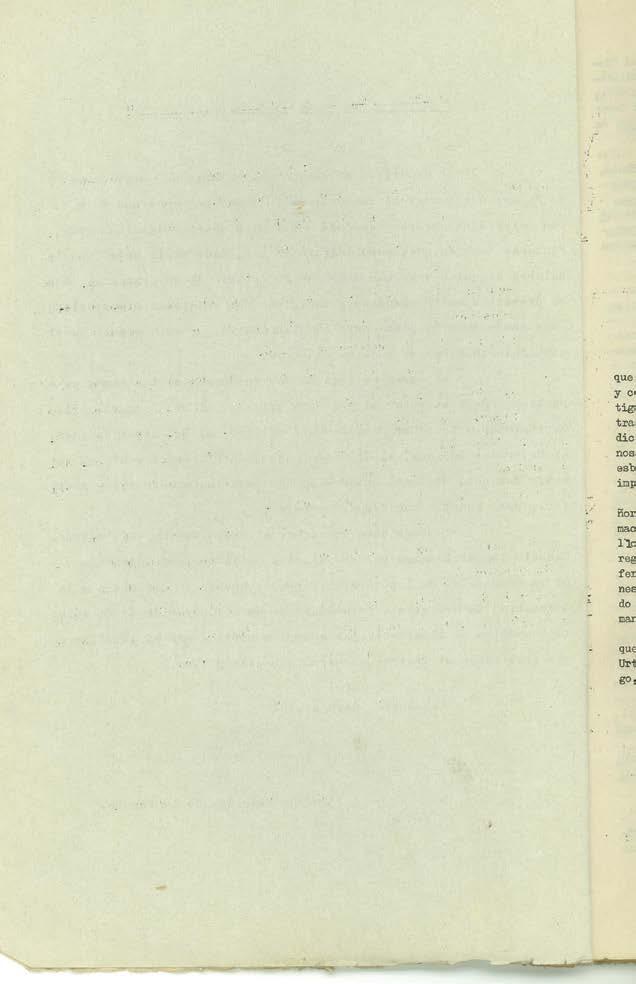
Essays and Provocations
STEPHEN RAMSAY
A witty and incisive exploration of the philosophical conundrums that animate the digital humanities
Since its inception, the digital humanities has been repeatedly attacked as a threat to the humanities: warnings from literary and cultural theorists of technology overtaking English departments and the mechanization of teaching have peppered popular media. Stephen Ramsay’s On the Digital Humanities, a collection of essays spanning the personal to the polemic, is a spirited defense of the field of digital humanities.
A founding figure in what was once known as “humanities computing,” Ramsay has a well-known and contentious relationship with what is now called the digital humanities (DH). Here Ramsay collects and updates his most influential and notorious essays and speeches from the past fifteen years, considering DH from an array of practical and theoretical perspectives. The essays pursue a broad variety of themes, including the nature of data and its place in more conventional notions of text and interpretation,
the relationship between the constraints of computation and the more open-ended nature of the humanities, the positioning of practical skills and infrastructures in both research and pedagogical contexts, the status of DH as a program for political and social action, and personal reflections on the author’s journey into the field as both a theorist and a technologist.
These wide-ranging essays all center around one idea: that DH not forsake its connection to the humanities. While “digital humanities” may sound like an entirely new form of engagement with the artifacts of human culture, Ramsay argues that the field well reveals what is most essential to humanistic inquiry.
Stephen Ramsay is associate professor of English and a fellow at the Center for Digital Research in the Humanities at the University of Nebraska–Lincoln. He is author of Reading Machines: Toward an Algorithmic Criticism and has contributions in two volumes of Minnesota’s Debates in the Digital Humanities series.
DIGITAL CULTURE/EDUCATION
$26.00x Paper ISBN: 978-1-5179-1501-8
$104.00xx Cloth ISBN: 978-1-5179-1500-1
$26.00 Retail e-book ISBN: 978-1-4529-6942-8
AUGUST
200 pages 12 b&w illustrations 5 1/2 x 8 1/2
35
UNIVERSITY OF MINNESOTA PRESS FALL/WINTER 2023–24
Unsettling Choice
Race, Rights, and the Partitioning of Public Education
UJJU AGGARWAL
How the Great Recession revealed a system of school choice built on crisis, precarity, and exclusion

What do universal rights to public goods like education mean when codified as individual, private choices? Is the “problem” of school choice actually not about better choices for all but, rather, about the competition and exclusion that choice engenders— guaranteeing a system of winners and losers? Unsettling Choice addresses such questions through a compelling ethnography that illuminates how one path of neoliberal restructuring in the United States emerged in tandem with, and in response to, the Civil Rights movement.
Drawing on ethnographic research in one New York City school district, Unsettling Choice traces the contestations that surfaced when, in the wake of the 2007–2009 Great Recession, public schools navigated austerity by expanding choice-based programs. Ujju Aggarwal argues that this strategy, positioned as “saving public schools,” mobilized mechanisms rooted in market logics to recruit families with economic capital on their
side, thereby solidifying a public sphere that increasingly resembled the private—where contingency was anticipated and rights for some were marked by intensified precarity for poor and working-class Black and Latinx families.
As Unsettling Choice shows, these struggles over public schools—one of the last remaining universal public goods in the United States— were entrapped within neoliberal regimes that exceeded privatization and ensured exclusion even as they were couched in language of equity, diversity, care, and rights. And yet this richly detailed and engaging book also tracks an architecture of expansive rights, care, and belonging built among poor and working-class parents at a Head Start center, whose critique of choice helps us understand how we might struggle for—and reimagine—justice, and a public that remains to be won.
Unsettling Choice
Race, Rights, and the Partitioning of Public Education
UJJU AGGARWAL
Ujju Aggarwal is assistant professor of anthropology and experiential learning at The New School. She is coeditor of What’s Race Got to Do with It? How Current School Reform Policy Maintains Racial and Economic Inequality
EDUCATION/ETHNOGRAPHY
$25.00x Paper ISBN: 978-1-5179-1567-4
$100.00xx Cloth ISBN: 978-1-5179-1566-7
$25.00 Retail e-book ISBN: 978-1-4529-7035-6
FEBRUARY 2024
184 pages 1 b&w illustration 2 maps 5 1/2 x 8 1/2
Retail e-book files for this title are screen-reader friendly with images accompanied by short alt text and/or extended descriptions.
36 UNIVERSITY OF MINNESOTA PRESS FALL/WINTER 2023–24
Creating Our Own Lives
College Students with Intellectual Disability
MICHAEL GILL AND BETH MYERS, EDITORS
College Students with Intellectual Disability


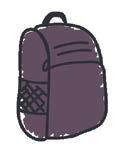

CREATING OUR OWN LIVES
Young adults with intellectual disability tell the story of their own experience of higher education
How do students with intellectual disability experience higher education? Creating Our Own Lives addresses this question through the eyes of participants themselves. In relating their experiences and aspirations, these student perspectives mount a powerful challenge to assumptions that intellectual disability is best met with protection or segregation.
Taken together, the essays expose and contradict the inherently ableist claim that individuals with intellectual disability cannot be reliable storytellers. Instead, their deeply informative stories serve as a corrective narrative.
Students with disabilities belong in higher education. Not only does this book serve as an important record of students enrolled in inclusive higher education programs, it is also an unprecedented resource, packed with information and inspiration both for parents seeking opportunities for their children and for individuals with intellectual disability who aspire to attend college.
Contributors: Makayla Adkins, Olivia Baist, Brandon Baldwin, George Barham, Marquavious Barnes, Katie Bartlett, Steven Brief, De'Onte Brown, Meghan Brozaitis, Mary Bryant, Gracie Carrol, Taylor Cathey, Maia Chamberlain, Antonia E. Contreras, Kim Dean, Elizabeth Droessler, Katie Ducett, Keiron Dyck, Rachel Gomez, Deriq Graves, Micah Gray, Maggie Guillaume, Cleo Hamilton, Nathan Heald, Joshua R. Hourigan, Hannah Lenae Humes, Courtney Jorgensen, Eilish Kelderman, Kailin Kelderman, Kenneth Kelty, Kaelan Knowles, Karlee Lambert, Kate Lisotta, Rachel Mast, Elise McDaniel, Emma Miller, Jake Miller, Lydia Newnum, Brenna Mantz Nielsen, Carly O’Connell, Nadia Osbey, Stirling Peebles, Breyan Pettaway, Amanda Pilkenton, True Rafferty, Taylor Ruppe, Lawrence Sapp, Tyler Shore, Brianna Silva, Alex Smith, Elliott Smith, Phillandra Smith, Payton Storms, Allen Thomas, Kylie Walter, Stephen Wanser, Sayid Webb, Breana Whittlesey, Luke Wilcox, Adam Wolfond.
Michael Gill and Beth Myers, Editors
Michael Gill is associate professor of disability studies at Syracuse University. He is author of Allergic Intimacies: Food, Disability, Desire, and Risk and Already Doing It: Intellectual Disability and Sexual Agency (Minnesota, 2015).
Beth Myers is Lawrence B. Taishoff Professor of Inclusive Education at Syracuse University. She is executive editor of the Journal of Inclusive Postsecondary Education and author of Autobiography on the Spectrum: Disrupting the Autism Narrative
EDUCATION/DISABILITY STUDIES



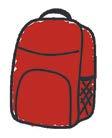
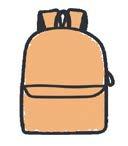
$25.00x Paper ISBN: 978-1-5179-0972-7
$100.00xx Cloth ISBN: 978-1-5179-0971-0




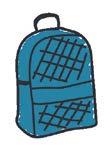

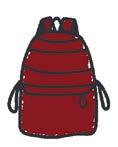



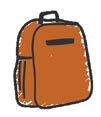




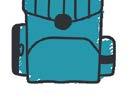
$25.00 Retail e-book ISBN: 978-1-4529-6406-5
OCTOBER
296 pages 24 b&w illustrations 5 1/2 x 8 1/2
Retail e-book files for this title are screen-reader friendly with images accompanied by short alt text and/or extended descriptions.
37
UNIVERSITY OF MINNESOTA PRESS FALL/WINTER 2023–24
Care without Pathology
How Trans- Health Activists Are Changing Medicine
CHRISTOPH HANSSMANN
Examining trans- healthcare as a key site through which struggles for health and justice take shape
Over the past two decades, medical and therapeutic approaches to transgender patients have changed radically, from treating a supposed pathology to offering genderaffirming care. Based on ethnographic fieldwork in New York City and Buenos Aires, Care without Pathology moves across the Americas to show how trans- health activists have taken on the project of depathologization.
In New York, Christoph Hanssmann examines activist attempts to overturn bans on using public health dollars to fund trans- health care. In Argentina, he traces how transactivists marshaled medical statistics and personal biographies to reveal state violence directed against trans- people and travestis. Hanssmann also demonstrates the importance of understanding transphobia in the broader
context of gendered racism, ableism, and antipoverty, arguing for the rise of a thoroughly coalition-based mass mobilization.
Care without Pathology highlights the distributive arguments activists made to access state funding for health care, combating state arguments that funding trans- health care is too specialized, too expensive, and too controversial. Hanssmann situates trans- health as a crucible within which sweeping changes are taking place— with potentially far-reaching effects on the economic and racial barriers to accessing care.
GENDER AND SEXUALITY/PUBLIC HEALTH

$30.00x Paper ISBN: 978-1-5179-1341-0
$120.00xx Cloth ISBN: 978-1-5179-1340-3
$30.00 Retail e-book ISBN: 978-1-4529-7029-5
NOVEMBER
336 pages 10 b&w illustrations 2 tables 5 1/2 x 8 1/2
Retail e-book files for this title are screen-reader friendly with images accompanied by short alt text and/or extended descriptions.
38 UNIVERSITY OF MINNESOTA PRESS FALL/WINTER 2023–24
Christoph Hanssmann is assistant professor in the Department of Gender, Sexuality, and Women’s Studies at the University of California, Davis.
Archiving Medical Violence
Consent and the Carceral State
CHRISTOPHER PERREIRA
A major new reading of a U.S. public health system shaped by fraught perceptions of culture, race, and criminality
At the heart of Archiving Medical Violence is an interrogation of the notions of national and scientific progress, marking an advance in scholarship that shows how such violence is both an engine of medical progress and, more broadly, the production of empire. It reads the medical archive through a lens that centers how it is produced, remembered, and contested within cultural production and critical memory.
In this innovative and interdisciplinary book, Christopher Perreira argues that it is in the contradictions of settler colonialism and racial capitalism that we find how medical violence is narrated as a public good. He presents case studies from across a range of locations— Hawai‘i, California, Louisiana, Guatemala— and historical periods from the nineteenth century on. Examining national and scientific
conceptions of progress through the lens of medicine and public health, he places official archives in dialogue with visual and literary works, patient writing, and more.
Archiving Medical Violence explores the contested public terrains for narrating value and vulnerabilities, bodies and geographical locations. Ultimately, Perreira reveals for us a medical imaginary built on racialized criminality driving contemporary politics of citizenship, memory, and identity.


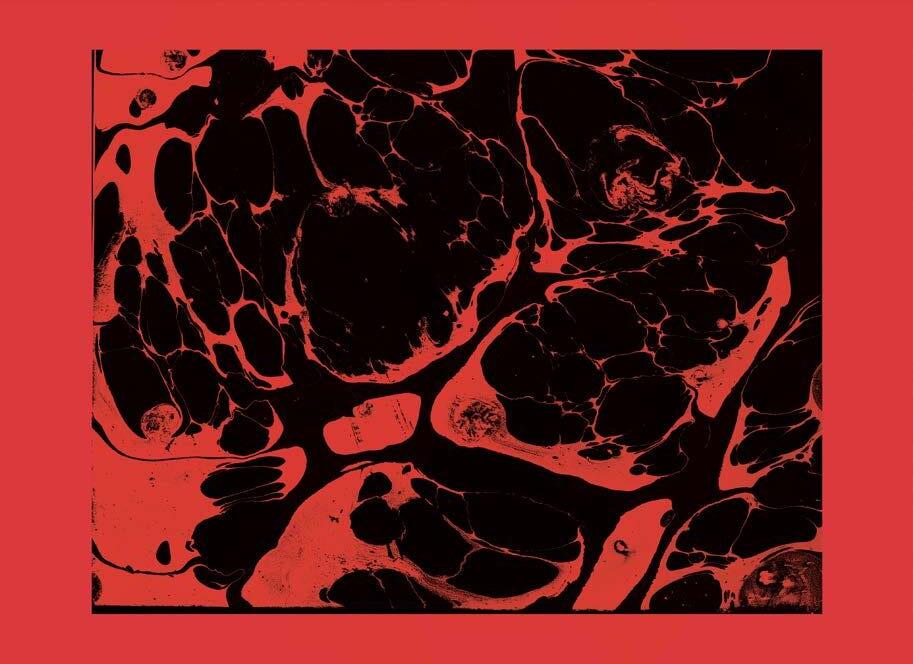




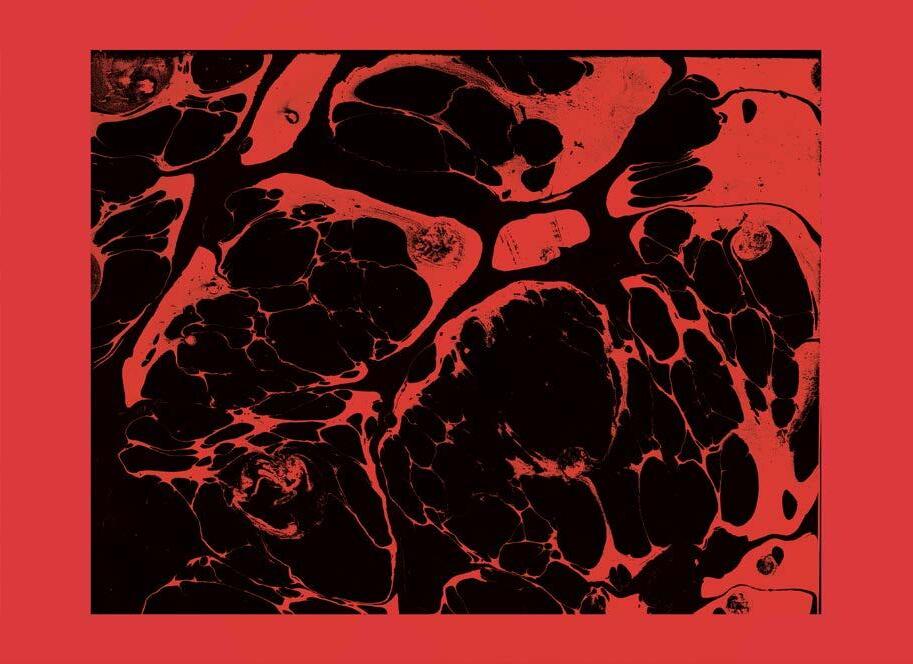
AMERICAN STUDIES/HISTORY OF MEDICINE
$25.00x Paper ISBN: 978-1-5179-0712-9
$100.00xx Cloth ISBN: 978-1-5179-0711-2
$25.00 Retail e-book ISBN: 978-1-4529-6074-6
OCTOBER
184 pages 7 b&w illustrations 5 1/2 x 8 1/2
Retail e-book files for this title are screen-reader friendly with images accompanied by short alt text and/or extended descriptions.
Christopher Perreira is associate professor of ethnic studies at the University of California, San Diego.
Torture in the National Security Imagination
STEPHANIE ATHEY
Torture IN THE National Security Imagination
Reassessing the role of torture in the context of police violence, mass incarceration, and racial capitalism
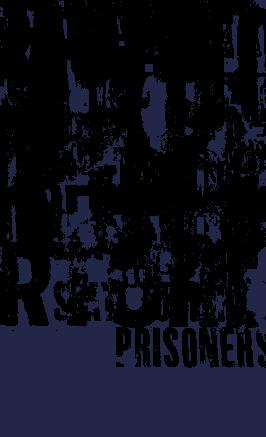


At the midpoint of a century of imperial expansion, marked on one end by the Philippine–American War of 1899–1902 and on the other by post–9/11 debates over waterboarding, the United States embraced a vision of “national security torture,” one contrived to cut ties with domestic torture and mass racial terror and to promote torture instead as a minimalist interrogation tool. Torture in the National Security Imagination argues that dispelling this vision requires a new set of questions about the everyday work that torture does for U.S. society.
Stephanie Athey describes the role of torture in the proliferation of a U.S. national security stance and imagination: as U.S. domestic tortures were refined in the Philippines at the turn of the twentieth century, then in midcentury counterinsurgency theory and the networks that brought it home in the form of law-and-order policing and mass incarceration.
Drawing on examples from news to military reports, legal writing, and activist media, Athey shows that torture must be seen as a colonial legacy with a corporate future, highlighting the centrality of torture to the American empire—including its role in colonial settlement, American Indian boarding schools, and police violence. She brings to the fore the spectators and commentators, the communal energy of violence, and the teams and target groups necessary to a mass undertaking (equipment suppliers, contractors, bureaucrats, university researchers, and profiteers) to demonstrate that, at base, torture is propelled by local social functions, conducted by networked professional collaborations, and publicly supported by a durable social imaginary.
STEPHANIE ATHEY
Stephanie Athey is professor of cultural studies at Lasell University in Greater Boston and editor of Sharpened Edge: Women of Color, Resistance, and Writing
AMERICAN STUDIES/POLITICAL SCIENCE
$30.00x Paper ISBN: 978-1-5179-1328-1
$120.00xx Cloth ISBN: 978-1-5179-1327-4


$30.00 Retail e-book ISBN: 978-1-4529-7038-7
JANUARY 2024
336 pages 5 1/2 x 8 1/2
40 UNIVERSITY OF
PRESS FALL/WINTER 2023–24
MINNESOTA
Terrorism on Trial

Political Violence and Abolitionist Futures
NICOLE NGUYEN
A landmark sociological examination of terrorism prosecution in United States courts
Rather than functioning as a final arbiter of justice, U.S. domestic courts are increasingly seen as counterterrorism tools that can incapacitate terrorists, maintain national security operations domestically, and produce certain narratives of conflict. Terrorism on Trial examines the contemporary role that these courts play in the global war on terror and their use as a weapon of war: hunting, criminalizing, and punishing entire communities in the name of national security.
Nicole Nguyen advocates for a rethinking of popular understandings of political violence and its root causes, encouraging readers to consider anti-imperial abolitionist alternatives to the criminalization, prosecution, and incarceration of individuals marked as real or perceived terrorists. She exposes how dominant academic discourses, geographical imaginations, and social processes have
shaped terrorism prosecutions, as well as how our fundamental misunderstanding of terrorism has led to punitive responses that do little to address the true sources of violence, such as military interventions, colonial occupations, and tyrannical regimes. Nguyen also explores how these criminal proceedings bear on the lives of defendants and families, seeking to understand how legal processes unevenly criminalize and disempower communities of color.
A retheorization of terrorism as political violence, Terrorism on Trial invites readers to carefully consider the role of power and politics in the making of armed resistance, addressing the root causes of political violence, with a goal of building toward a less violent and more liberatory world.
A Curriculum of Fear: Homeland Security in U.S. Public Schools (Minnesota, 2016) and Suspect Communities: Anti-Muslim Racism and the Domestic War on Terror (Minnesota, 2019).
LAW AND LEGAL STUDIES/AMERICAN STUDIES
$30.00x Paper ISBN: 978-1-5179-1439-4
$120.00xx Cloth ISBN: 978-1-5179-1438-7
$30.00 Retail e-book ISBN: 978-1-4529-6979-4
OCTOBER
424 pages 5 1/2 x 8 1/2
41
UNIVERSITY OF MINNESOTA PRESS FALL/WINTER 2023–24
Political Violence and Abolitionist Futures NICOLE NGUYEN Nicole Nguyen is associate professor of criminology, law, and justice and educational policy studies at the University of Illinois–Chicago. She is author of
Ugly White People
Writing Whiteness in Contemporary America
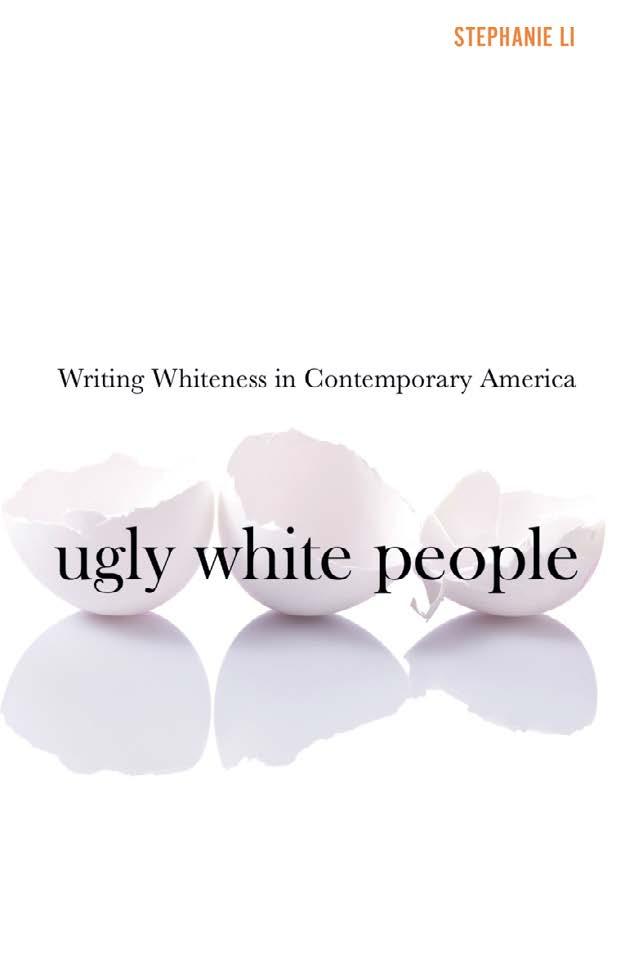 STEPHANIE LI
STEPHANIE LI
Whiteness revealed: an analysis of the destructive complacency of white self-consciousness
White Americans are confronting their whiteness more than ever before, with political and social shifts ushering in a newfound racial awareness. And with white people increasingly seeing themselves as distinctly racialized (not simply as American or human), white writers are exposing a self-awareness of white racialized behavior— from staunch antiracism to virulent forms of xenophobic nationalism. Ugly White People explores representations of whiteness from twenty-first-century white American authors, revealing white recognition of the ugly forms whiteness can take.
Stephanie Li argues that much of the twentyfirst century has been defined by this rising consciousness of whiteness because of the imminent shift to a “majority minority” population and the growing diversification of America’s political, social, and cultural institutions. The result is literature that more directly grapples with whiteness as its own construct rather than a wrongly assumed norm. Li contextualizes a series of literary
novels as collectively influenced by changes in racial and political attitudes. Turning to works by Dave Eggers, Sarah Smarsh, J. D. Vance, Claire Messud, Ben Lerner, and others, she traces the responses to white consciousness that breed shared manifestations of ugliness. The tension between acknowledging whiteness as an identity built on domination and the failure to remedy inequalities that have proliferated from this founding injustice is often the source of the ugly whiteness portrayed through these narratives.
The questions posed in Ugly White People about the nature and future of whiteness are vital to understanding contemporary race relations in America. From the election of Trump and the rise of white nationalism to Karen memes and the war against critical race theory to the pervasive pattern of behavior among largely liberal-leaning whites, Li elucidates truths about whiteness that challenge any hope of national unity and, most devastatingly, the basic humanity of others.
LITERARY CRITICISM/AMERICAN STUDIES
$28.00x Paper ISBN: 978-1-5179-1574-2
$112.00xx Cloth ISBN: 978-1-5179-1573-5
$28.00 Retail e-book ISBN: 978-1-4529-6990-9
OCTOBER
272 pages 5 1/2 x 8 1/2
Retail e-book files for this title are screen-reader friendly.
42 UNIVERSITY OF MINNESOTA PRESS FALL/WINTER 2023–24
Stephanie Li is Lynne Cooper Harvey Distinguished Professor of English at Washington University in St. Louis. She is author of Pan-African American Literature, Playing in the White, and Signifying without Specifying
The Colonial Construction of Indian Country
Native American Literatures and Federal Indian Law
ERIC CHEYFITZ
A guide to the colonization and projected decolonization of Native America

In The Colonial Construction of Indian Country, Eric Cheyfitz mounts a pointed historical critique of colonialism through careful analysis of the dialogue between Native American literatures and federal Indian law. Illuminating how these literatures indict colonial practices, he argues that if the decolonization of Indian country is to be achieved, then federal Indian law must be erased and replaced with independent Native nation sovereignty— because subordinate sovereignty, the historical regime, is not sovereignty at all.
At the same time, Cheyfitz argues that Native American literatures, specifically U.S. American Indian literatures, cannot be fully understood without a knowledge of U.S. federal Indian law: the matrix of colonialism in Indian country. Providing intersectional readings of a range of literary and legal texts, he discusses such authors as Louise Erdrich, Frances Washburn, James Welch, Gerald Vizenor, Simon Ortiz, Leslie Marmon Silko,
and others. Cheyfitz examines how American Indian writers and critics have responded to the impact of law on Native life, revealing recent trends in Native writing that build upon traditional modes of storytelling and governance.
With a focus on resistance to the colonial regime of federal Indian law, The Colonial Construction of Indian Country not only elucidates how Native American literatures and federal Indian law are each crucial to any reading of the other, it also guides readers to better understand the genocidal assault on Indigenous peoples by Western structures of literacy, politics, and law.
COLONIAL CONSTRUCTION INDIAN COUNTRY
THE OF NATIVE AMERICAN LITERATURES & FEDERAL INDIAN LAW
NATIVE STUDIES/LITERARY CRITICISM
$27.00x Paper ISBN: 978-1-5179-1133-1
$108.00xx Cloth ISBN: 978-1-5179-1132-4

$27.00 Retail e-book ISBN: 978-1-4529-7051-6
DECEMBER
256 pages 5 1/2 x 8 1/2
Indigenous Americas Series
43
UNIVERSITY OF MINNESOTA PRESS FALL/WINTER 2023–24
ERIC CHEYFITZ
Eric Cheyfitz is Ernest I. White Professor of American Studies and Humane Letters in the American Indian and Indigenous Studies Program at Cornell University. He is author of The Disinformation Age: The Collapse of Liberal Democracy in the United States
The New American War Film
ROBERT BURGOYNE
THE NEW AMERICAN WAR FILM
A look at how post-9/11 cinema captures the new face of war in the twenty-first century

While the war film has carved out a prominent space within the history of cinema, the twenty-first century has seen a significant shift in the characteristics that define it. Serving as a roadmap to the genre’s contemporary modes of expression, The New American War Film explores how, in the wake of 9/11, both the nature of military conflict and the symbolic frameworks that surround it have been dramatically reshaped.
Featuring in-depth analyses of contemporary films like The Hurt Locker, Zero Dark Thirty, Eye in the Sky, American Sniper, and others, The New American War Film details the genre’s turn away from previously foundational themes of heroic sacrifice and national glory, instead emphasizing the procedural violence of advanced military technologies and the haptic damage inflicted on individual bodies. Unfolding amid an atmosphere of profound
anxiety and disillusionment, the new American war film demonstrates a breakdown of the prevailing cultural narratives that had come to characterize conflict in the previous century.

With each chapter highlighting a different facet of war’s cinematic representation, The New American War Film charts society’s shifting attitudes toward violent conflict and what is broadly considered to be its acceptable repercussions. Drawing attention to changes in gender dynamics and the focus on war’s lasting psychological effects within these recent films, Robert Burgoyne analyzes how cinema both reflects and reveals the makeup of the national imaginary.
FILM STUDIES/AMERICAN STUDIES
$25.00x Paper ISBN: 978-1-5179-1544-5
$100.00xx Cloth ISBN: 978-1-5179-1543-8
$25.00 Retail e-book ISBN: 978-1-4529-6973-2
SEPTEMBER
200 pages 24 b&w illustrations 5 1/2 x 8 1/2
44 UNIVERSITY OF MINNESOTA PRESS FALL/WINTER 2023–24
Robert Burgoyne
Robert Burgoyne is author of Film Nation: Hollywood Looks at U.S. History, Revised Edition (Minnesota, 2010).
Border Tunnels
A Media Theory of the U.S.–Mexico Underground JUAN LLAMAS-RODRIGUEZ
A MEDIA THEORY OF THE U.S.-MEXICO UNDERGROUND
A comparative media analysis of the representation of the U.S.–Mexico border
Border tunnels at the U.S.–Mexico border are ubiquitous in news, movies, and television, yet, because they remain hidden and inaccessible, the public can encounter them only through media. Analyzing the technologies, institutional politics, narrative tropes, and aesthetic decisions that go into showing border tunnels across multiple forms of media, Juan Llamas-Rodriguez argues that we cannot properly address border issues without attending to—and fully understanding—the fraught relationship between their representation and reality.
Llamas-Rodriguez reveals that every media text about border tunnels, whether meant for entertainment, cable news, video games, or speculative design, implicitly takes a position on the politics of the border. The examples laid out in Border Tunnels will teach readers how to look differently at the border as it is commonly presented in various forms of media, from
ABC’s Nightline and CNN’s Anderson Cooper 360º to reality TV, propaganda videos, and even digital effects in Hollywood action films. Llamas-Rodriguez examines how creative decisions in the production, promotion, and distribution of these media texts either emphasize or downplay issues such as border security, racial dynamics of migration, and sustainability of the borderlands.
Focusing on tunnels to show how media representations can influence all kinds of audiences—even those physically near the border—Border Tunnels helps us make sense of this pressing social issue, ultimately advancing understanding of the U.S.–Mexico border in all of its complexity and precariousness.
BORDER TUNNELS
JUAN LLAMAS-RODRIGUEZ
Juan Llamas-Rodriguez is assistant professor of global media in the Annenberg School for Communication and affiliated faculty with the Center for Latin American and Latinx Studies at the University of Pennsylvania.
MEDIA STUDIES
$28.00x Paper ISBN: 978-1-5179-1429-5
$112.00xx Cloth ISBN: 978-1-5179-1428-8
$28.00 Retail e-book ISBN: 978-1-4529-6977-0
NOVEMBER
272 pages 80 b&w illustrations 5 1/2 x 8 1/2
45
UNIVERSITY OF MINNESOTA PRESS FALL/WINTER 2023–24
Asians on Demand
Mediating Race in Video Art and Activism
FENG-MEI HEBERER
Does media representation advance racial justice?
While the past decade has witnessed a push for increased diversity in visual media, Asians on Demand grapples with the pressing question of whether representation is enough to advance racial justice. Surveying a contemporary, cutting-edge archive of video works from the Asian diaspora in North America, Europe, and East Asia, this book uncovers the ways that diasporic artists challenge the narrow—and damaging— conceptions of Asian identity pervading mainstream media.
Through an engagement with grassroots activist documentaries, experimental video diaries by undocumented and migrant workers, and works by high-profile media artists such as Hito Steyerl and Ming Wong, Feng-Mei Heberer showcases contemporary video productions that trouble the mainstream culture industry’s insistence on portraying ethnic Asians as congenial to dominant neoliberal values. Undermining the demands placed on Asian subjects to
exemplify institutional diversity and individual exceptionalism, this book provides a critical and nuanced set of alternatives to the easily digestible forms generated by online streaming culture and multicultural lip service more broadly.
Employing feminist, racial, and queer critiques of the contemporary media landscape, Asians on Demand highlights how the dynamics of Asian representation play out differently in Germany, the United States, Taiwan, and Spain. Rather than accepting the notion that inclusion requires an uncomplicated set of appearances, the works explored in this volume spotlight a staunch resistance to formulating racial identity as an instantly accessible consumer product.
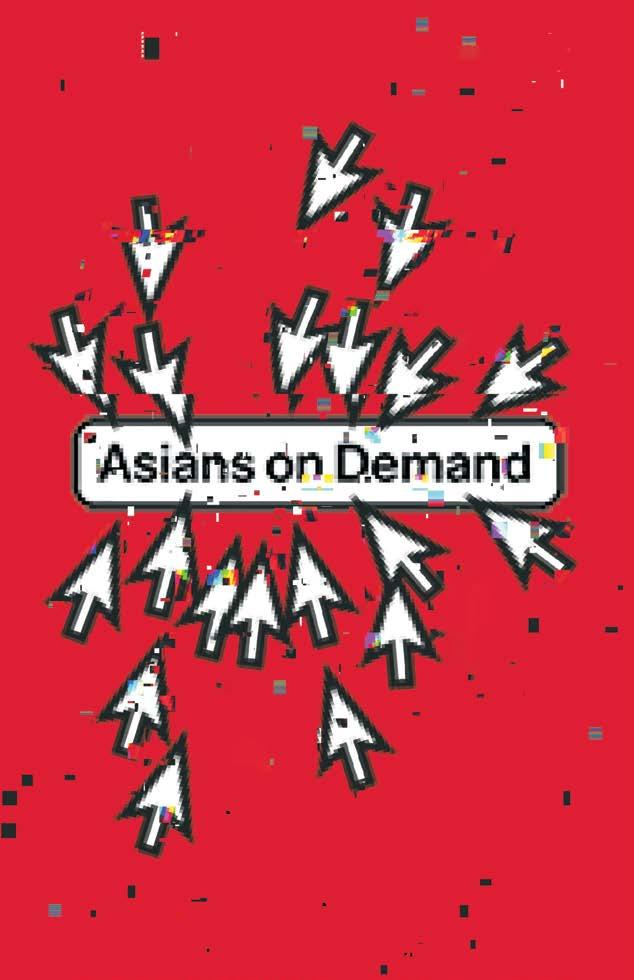
FILM STUDIES/ASIAN STUDIES
$25.00x Paper ISBN: 978-1-5179-1481-3
$100.00xx Cloth ISBN: 978-1-5179-1480-6
$25.00 Retail e-book ISBN: 978-1-4529-6954-1
SEPTEMBER
200 pages 23 b&w illustrations 5 1/2 x 8 1/2
46 UNIVERSITY OF MINNESOTA PRESS FALL/WINTER 2023–24
Mediating Race in Video Art and Activism
Feng-Mei Heberer
Feng-Mei Heberer is assistant professor of cinema studies at New York University.
In Visible Archives
Queer and Feminist Visual Culture in the 1980s
MARGARET GALVAN
Analyzing how 1980s visual culture provided a vital space for women artists to theorize and visualize their own bodies and sexualities
In 1982, the protests of antiporn feminists sparked the censorship of the Diary of a Conference on Sexuality, a radical and sexually evocative image-text volume whose silencing became a symbol for the irresolvable feminist sex wars. In Visible Archives documents the community networks that produced this resonant artifact and others, analyzing how visual culture provided a vital space for women artists to theorize and visualize their own bodies and sexualities.
Margaret Galvan explores a number of feminist and cultural touchstones—the feminist sex wars, the HIV/AIDS crisis, the women in print movement, and countercultural grassroots periodical networks—and examines how visual culture interacts with these pivotal moments. She goes deep into the records to bring together a decade’s worth of research in grassroots and university archives that include
comics, collages, photographs, drawings, and other image-text media produced by women, including Hannah Alderfer, Beth Jaker, Marybeth Nelson, Roberta Gregory, Lee Marrs, Alison Bechdel, Gloria Anzaldúa, and Nan Goldin.
The art highlighted in In Visible Archives demonstrates how women represented their bodies and sexualities on their own terms and created visibility for new, diverse identities, thus serving as blueprints for future activism and advocacy—work that is urgent now more than ever as LGBTQ+ and women’s rights face challenges and restrictions across the nation.
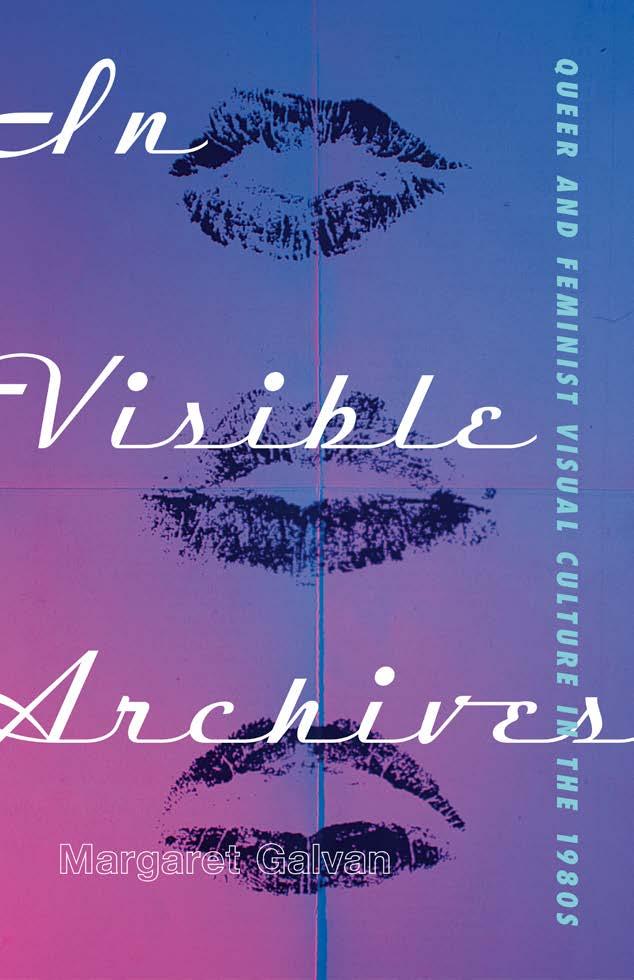
ART/VISUAL CULTURE/GENDER AND SEXUALITY
$28.00x Paper ISBN: 978-1-5179-0324-4
$112.00xx Cloth ISBN: 978-1-5179-0323-7
$28.00 Retail e-book ISBN: 978-1-4529-6983-1
SEPTEMBER
336 pages 65 b&w illustrations 5 1/2 x 8 1/2
Retail e-book files for this title are screen-reader friendly with images accompanied by short alt text and/or extended descriptions.
47
UNIVERSITY OF MINNESOTA PRESS FALL/WINTER 2023–24
Margaret Galvan is assistant professor of English at the University of Florida.
Cash, Clothes, and Construction
Rethinking Value in Bolivia’s Pluri-economy
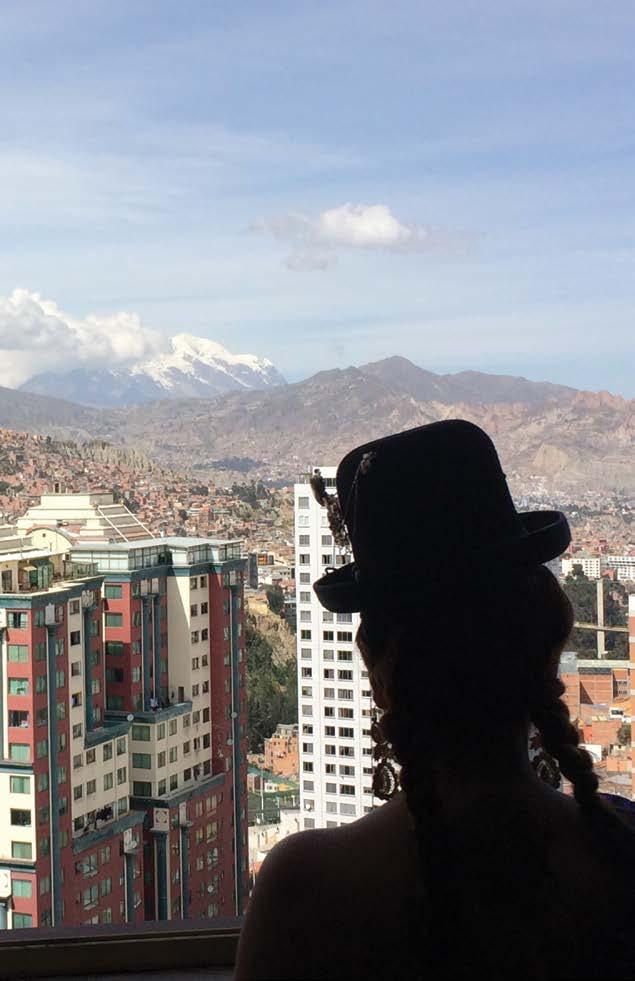 KATE MACLEAN
KATE MACLEAN
CASH, CLOTHES, & CONSTRUCTION
A groundbreaking feminist perspective on Movimiento al Socialismo (MAS) rule in Bolivia and the country’s radical transformation under Evo Morales
The presidency of Evo Morales in Bolivia (2006–2019) has produced considerable academic scholarship, much of it focused on Indigenous social movements or extractivism, and often triumphalist about the successes of Morales’s Movimiento al Socialismo (MAS). Turning a new lens on the movement, Cash, Clothes, and Construction presents the first gender-based analysis of “pluri-economy,” a central pillar of Bolivia’s program under Morales, evaluating the potential of this vision of “an economy where all economies fit” to embrace feminist critiques of capitalism and economic diversity.
Based on more than twelve years of empirical research exploring the remarkable transformations in Bolivia since 2006, this book focuses on three sectors—finance, clothing, and construction—in which Indigenous women have defied gendered expectations. Kate Maclean presents detailed
case studies of women selling second-hand high street clothes from the United States in the vast, peri-urban markets of Bolivian cities; Aymaran designers of new pollera (traditional Andean dress) fashions, one of whom exhibited her collection in New York City; and the powerful and rich chola paceña whose real estate investments have transformed the cultural maps of La Paz and El Alto.
Cash, Clothes, and Construction offers a gendered analysis of the mission of MAS to dismantle neoliberalism and decolonize politics and economy from the perspective of the Indigenous women who have radically transformed Bolivia’s economy from the ground up.
Kate Maclean is associate professor at the Institute of Global Prosperity at The Bartlett, University College London. She is author of Social Urbanism and the Politics of Violence: The Medellín Miracle
GEOGRAPHY/POLITICAL SCIENCE
$28.00x Paper ISBN: 978-1-5179-1596-4
$112.00xx Cloth ISBN: 978-1-5179-1595-7
$28.00 Retail e-book ISBN: 978-1-4529-6996-1
NOVEMBER

288 pages 8 b&w illustrations 5 1/2 x 8 1/2
Diverse Economies and Livable Worlds Series
48 UNIVERSITY OF MINNESOTA PRESS FALL/WINTER 2023–24
RETHINKING VALUE IN BOLIVIA’S PLURI-ECONOMY
KATE MACLEAN
The Effluent Eye

Narratives for Decolonial Right-Making
ROSEMARY J. JOLLY
Why human rights don’t work
In The Effluent Eye, Rosemary J. Jolly argues for the decolonization of human rights, attributing their failure not simply to state and institutional malfeasance but to the very concept of human rights as anthropocentric— and, therefore, fatally shortsighted. In an engaging mix of literary and cultural criticism, Indigenous and Black critique, and substantive forays into the medical humanities, Jolly proposes right-making in the demise of human rights.
Using what she calls an “effluent eye,” Jolly draws on “Fifth Wave” structural public health to confront the concept of human rights—one of the most powerful and widely entrenched liberal ideas. She builds on Indigenous sovereignty work from authors such as Robin Wall Kimmerer, Leanne Betasamosake Simpson, and Mark Rifkin as well as the littoral development in Black studies from Christine Sharpe, Saidiya Hartman, and Tiffany Lethabo King to engage decolonial thinking
on a range of urgent topics such as pandemic history and grief; gender-based violence and sexual assault; and the connections between colonial capitalism and substance abuse, the Anthropocene, and climate change.
Combining witnessed experience with an array of decolonial texts, Jolly argues for an effluent form of reading that begins with the understanding that the granting of “rights” to individuals is meaningless in a world compromised by pollution, poverty, and successive pandemics.
author of Cultured Violence: Narrative, Social Suffering, and Engendering Human Rights in Contemporary South Africa
LITERARY CRITICISM
$27.00x Paper ISBN: 978-1-5179-1569-8
$108.00xx Cloth ISBN: 978-1-5179-1568-1
$27.00 Retail e-book ISBN: 978-1-4529-7070-7
JANUARY 2024
264 pages 5 1/2 x 8 1/2
Retail e-book files for this title are screen-reader friendly.
49
UNIVERSITY OF MINNESOTA PRESS FALL/WINTER 2023–24 Th E E
Eye Narrat ves for Decolonial R ght- Making
f F luen t
Rosemar y J Jolly
Rosemary J. Jolly is Weiss Chair of the Humanities and professor of comparative literature, English, bioethics, women’s studies, and African studies at Penn State. She is
Cinema Is the Strongest Weapon
Race-Making and Resistance in Fascist Italy
LORENZO FABBRI
A deep dive into Italian cinema under Mussolini’s regime and the filmmakers who used it to express antifascist resistance
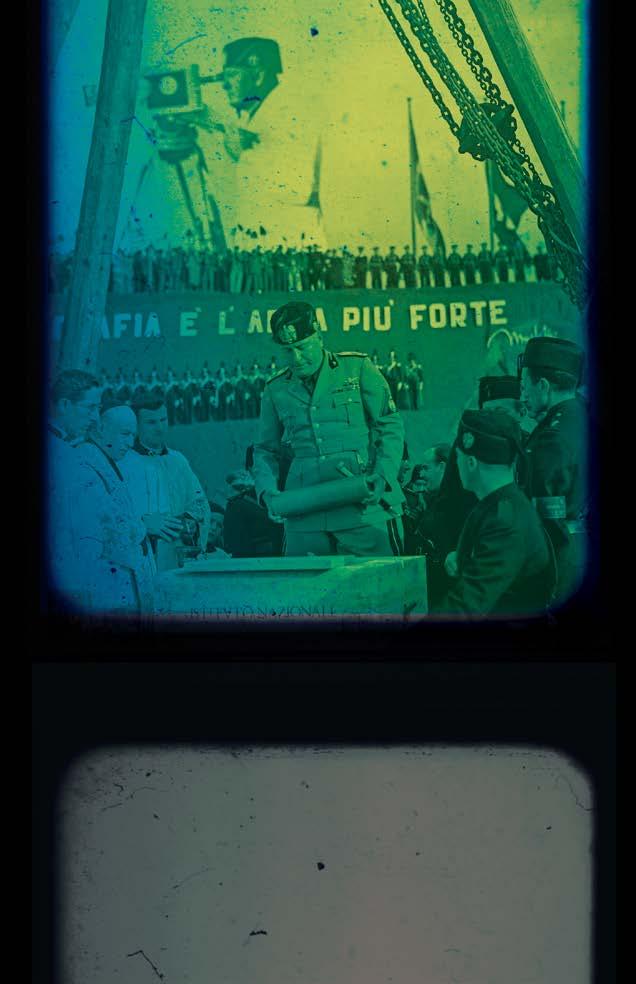
Looking at Italy’s national film industry under the rule of Benito Mussolini and in the era that followed, Cinema Is the Strongest Weapon examines how cinema was harnessed as a political tool by both the reigning fascist regime and those who sought to resist it. Covering a range of canonical works alongside many of their neglected contemporaries, this book explores film’s mutable relationship to the apparatuses of state power and racial capitalism.
Exploiting realism’s aesthetic, experiential, and affective affordances, Mussolini’s biopolitical project employed cinema to advance an idealized vision of life under fascism and cultivate the basis for a homogenous racial identity. In this book, Lorenzo Fabbri crucially underscores realism’s susceptibility to manipulation from diametrically opposed
political perspectives, highlighting the queer, Communist, Jewish, and feminist filmmakers who subverted Mussolini’s notion that “cinema is the regime’s strongest weapon” by developing film narratives and film forms that challenged the prevailing ethno-nationalist ideology.
Focusing on an understudied era of film history and Italian cultural production, Fabbri issues an important recontextualization of Italy’s celebrated neorealist movement and the structural ties it shares with its predecessor. Drawing incisive parallels to contemporary debates around race, whiteness, authoritarianism, and politics, he presents an urgent examination into the broader impact of visual media on culture and society.
CINEMA IS THE STRONGEST WEAPON
FILM STUDIES/CULTURAL STUDIES
$30.00x Paper ISBN: 978-1-5179-1084-6
$120.00xx Cloth ISBN: 978-1-5179-1083-9
$30.00 Retail e-book ISBN: 978-1-4529-6536-9
DECEMBER
320 pages 49 b&w illustrations 5 1/2 x 8 1/2
Retail e-book files for this title are screen-reader friendly with images accompanied by short alt text and/or extended descriptions.
50 UNIVERSITY OF MINNESOTA PRESS FALL/WINTER 2023–24
Race-Making and Resistance in Fascist Italy LORENZO FABBRI
Lorenzo Fabbri is associate professor of French and Italian at the University of Minnesota.
Racial Blackness and Indian Ocean Slavery
Iran’s Cinematic Archive
PARISA VAZIRI
Rethinking the history of African enslavement in the western Indian Ocean through the lens of Iranian cinema
From the East African and Red Sea coasts to the Persian Gulf ports of Bushihr, Kish, and Hurmuz, sailing and caravan networks supplied Iran and the surrounding regions with African slave labor from antiquity to the nineteenth century. This book reveals how Iranian cinema preserves the legacy of this vast and yet longoverlooked history that has come to be known as Indian Ocean slavery.
How does a focus on blackness complicate traditional understandings of history and culture? Parisa Vaziri addresses this question by looking at residues of the Indian Ocean slave trade in Iranian films from the second half of the twentieth century. Revealing the politicized clash between commercial cinema (fīlmfārsī) and alternative filmmaking (the Iranian New Wave), she pays particular attention to the healing ritual zār, which is both an African slave descendent practice and a constitutive element of Iranian culture, as well as to cinematic sīyāh bāzī (Persian black play). Moving beyond other studies
on Indian Ocean and trans-Saharan slavery, Vaziri highlights the crystallization of a singular mode of historicity within these cinematic examples—one of “absence” that reflects the relative dearth of archival information on the facts surrounding Indian Ocean slavery.
Bringing together cinema studies, Middle East studies, Black studies, and postcolonial theory, Racial Blackness and Indian Ocean Slavery explores African enslavement in the Indian Ocean through the revelatory and little-known history of Iranian cinema. It shows that Iranian film reveals a resistance to facticity representative of the history of African enslavement in the Indian Ocean and preserves the legacy of African slavery’s longue durée in ways that resist its overpowering erasure in the popular and historical imagination.
FILM STUDIES/MIDDLE EASTERN STUDIES
$30.00x Paper ISBN: 978-1-5179-1475-2
$120.00xx Cloth ISBN: 978-1-5179-1474-5

$30.00 Retail e-book ISBN: 978-1-4529-7020-2
DECEMBER
368 pages 48 b&w illustrations 5 1/2 x 8 1/2
Retail e-book files for this title are screen-reader friendly with images accompanied by short alt text and/or extended descriptions.
51
UNIVERSITY OF MINNESOTA PRESS FALL/WINTER 2023–24
Iran’s Cinematic Archive
Racial Blackness and Indian Ocean Slavery
parisa vaziri
Parisa Vaziri is assistant professor of comparative literature and Near Eastern studies at Cornell University.
The Shape of Utopia
The Architecture of Radical Reform in Nineteenth-Century America
IRENE CHENG
How nineteenth-century social reformers devised a new set of radical blueprints for society
In the middle of the nineteenth century, a utopian impulse flourished in the United States through the circulation of architectural and urban plans predicated on geometrically distinct designs. Though the majority of such plans remained unrealized, The Shape of Utopia emphasizes the enduring importance of these radical propositions and their ability to visualize alternatives to what was then a newly emerging capitalist nation.
Drawing diagrammatic plans for structures such as octagonal houses, a hexagonal anarchist city, and circular centers of equitable commerce, these various architectural utopians applied geometric forms to envision a more just and harmonious society. Highlighting the inherent political capacity of architecture, Irene Cheng showcases how these visionary planners used their blueprints
as persuasive visual rhetoric that could mobilize others to share in their aspirations for a better world.
Offering an extensive and uniquely focused view of mid-nineteenth-century America’s rapidly changing cultural landscape, this book examines these utopian plans within the context of significant economic and technological transformation, encompassing movements such as phrenology, anarchism, and spiritualism. Engaging equally with architectural history, visual culture studies, and U.S. history, The Shape of Utopia documents a pivotal moment in American history when ordinary people ardently believed in the potential to reshape society.
The Shape of Utopia
ARCHITECTURE/AMERICAN STUDIES
$35.00x Paper ISBN: 978-1-5179-0746-4
$140.00xx Cloth ISBN: 978-1-5179-0745-7
$35.00 Retail e-book ISBN: 978-1-4529-6096-8
SEPTEMBER
360 pages 140 b&w illustrations 7 x 10
Buell Center Books in the History and Theory of American Architecture Series
52 UNIVERSITY OF MINNESOTA PRESS FALL/WINTER 2023–24
THE ARCHITECTURE OF RADICAL REFORM IN NINETEENTH-CENTURY AMERICA
Irene Cheng
Irene Cheng is associate professor of architecture at the California College of the Arts.
Nietzsche’s Posthumanism
EDGAR LANDGRAF
A timely and trenchant commentary on the centrality of Nietzsche’s thought for our time
While many posthumanists claim Nietzsche as one of their own, rarely do they engage his philosophy in any real depth. Nietzsche’s Posthumanism addresses this need by exploring the continuities and disagreements between Nietzsche’s philosophy and contemporary posthumanism. Focusing specifically on Nietzsche’s reception of the life sciences of his day and his reflections on technology—research areas as central to Nietzsche’s work as they are to posthumanism—Edgar Landgraf provides fresh readings of Nietzsche and a critique of post- and transhumanist philosophies.

Through Landgraf’s inquiry, lesser-known aspects of Nietzsche’s writings emerge, including the neurophysiological basis of his epistemology (which anticipates contemporary debates on embodiment), his concerns with insects and the emergent social properties they exhibit, and his reflections
on the hominization and cultivation effects of technology. In the process, Landgraf challenges major commonplaces about Nietzsche’s philosophy, including the idea that his social theory asserts the rights of “the strong” over “the weak.” The ethos of critical posthumanism also offers a new perspective on key ethical and political contentions of Nietzsche’s writings.
Nietzsche’s Posthumanism presents a uniquely framed introduction to tenets of Nietzsche’s thought and major trends in posthumanism, making it an essential exploration for anyone invested in Nietzsche and his contemporary relevance, and in posthumanism and its genealogy.
NIETZSCHE’S pOSTHUmAN I s M
EDGAR LANDGRAF
Edgar Landgraf is professor of German at Bowling Green State University. He is author of Improvisation as Art: Conceptual Challenges, Historical Perspectives and coeditor of Posthumanism in the Age of Humanism and Play in the Age of Goethe
PHILOSOPHY/THEORY
$28.00x Paper ISBN: 978-1-5179-1533-9
$112.00xx Cloth ISBN: 978-1-5179-1532-2
$28.00 Retail e-book ISBN: 978-1-4529-6940-4
SEPTEMBER
280 pages 5 1/2 x 8 1/2
Posthumanities Series
Retail e-book files for this title are screen-reader friendly.
53
UNIVERSITY OF MINNESOTA PRESS FALL/WINTER 2023–24
From Biological Practice to Scientific Metaphysics
WILLIAM C. BAUSMAN, JANELLA K. BAXTER, AND OLIVER M. LEAN, EDITORS
From Biological Practice to Scientific Metaphysics
How analyzing scientific practices can alter debates on the relationship between science and reality
Numerous scholarly works focus solely on scientific metaphysics or biological practice, but few attempt to bridge the two subjects. This volume, the latest in the Minnesota Studies in the Philosophy of Science series, explores what a scientific metaphysics grounded in biological practices could look like and how it might impact the way we investigate the world around us.
From Biological Practice to Scientific Metaphysics examines how to reconcile the methods of biological practice with the methods of metaphysical cosmology, notably regarding the origins of life. The contributors take up a wide range of traditional metaphysics and philosophy of science topics, including natural kinds, medicine, ecology, genetics, scientific pluralism, reductionism, operationalism, mechanisms, the nature of information, and more. Many of the chapters represent the first philosophical treatments of significant biological practices.

From causality and complexity to niche constructions and inference, the contributors review and discuss long-held objections to metaphysics by natural scientists. They illuminate how, in order to learn about the world as it truly is, we must look not only at what scientists say but also what they do: for ontology cannot be read directly from scientific claims.
Contributors: Richard Creath, Arizona State U; Marc Ereshefsky, U of Calgary; Marie I. Kaiser, Bielefeld U; Thomas A. C. Reydon, Leibniz U Hannover and Michigan State U; Lauren N. Ross, U of California, Irvine; Rose Trappes, U of Exeter; Marcel Weber, U of Geneva; William C. Wimsatt, U of Chicago.
PHILOSOPHY OF SCIENCE
$40.00x Paper ISBN: 978-1-5179-1671-8
$160.00xx Cloth ISBN: 978-1-5179-1670-1
$40.00 Retail e-book ISBN: 978-1-4529-7055-4
JANUARY 2024
352 pages 20 b&w illustrations 2 tables 6 x 9 Minnesota Studies in the Philosophy of Science Series, volume 23
Retail e-book files for this title are screen-reader friendly with images accompanied by short alt text and/or extended descriptions.
54 UNIVERSITY OF MINNESOTA PRESS FALL/WINTER 2023–24
MINNESOTA STUDIES IN THE PHILOSOPHY OF SCIENCE VOLUME 23
William C. Bausman, Janella K. Baxter, and Oliver M. Lean, Editors
William C. Bausman is postdoctoral fellow in the Department of Philosophy at the University of Zurich.
Janella K. Baxter is assistant professor in the Department of Psychology and Philosophy at Sam Houston State University.
Oliver M. Lean is a data scientist at AltaML in Calgary, Canada.
Interpreting the MMPI-3
YOSSEF S. BEN-PORATH AND MARTIN SELLBOM
the Interpreting
An essential guide to detailed and accurate interpretation of the MMPI-3

The MMPI-3 builds on the history and strengths of the MMPI instruments to provide an empirically validated, psychometrically up-to-date standard for psychological assessment. Updating and expanding the information found in MMPI-3 test manuals, Interpreting the MMPI-3 is an indispensable resource for practicing clinicians and a vital textbook for graduate psychological assessment courses that use and study this singular psychological instrument.
Yossef S. Ben-Porath, coauthor of the MMPI-3, and Martin Sellbom, a leading expert on the MMPI instruments, provide detailed descriptions and interpretive recommendations for test scales, along with illustrative cases from a wide variety of settings, including forensic (criminal and civil), medical, and personnel screening. This core interpretive content places the MMPI-3 at
the forefront of contemporary psychological assessment, while also providing important background on older versions of the test.
This volume includes an in-depth look at the test’s history, development, administration, and interpretation, and it also addresses diversity-sensitive assessment with the test. A comprehensive guide for clinicians, researchers, and students, this book sets the standard for interpretation of and instruction on the MMPI-3.
A book-based exam offering Continuing Education (CE) credit is available for this publication. Visit upress.umn.edu/ test-division for more information.
Yossef S. Ben-Porath is professor of psychological sciences at Kent State University. A board-certified clinical psychologist, he has been involved extensively in MMPI research for the past thirty-seven years. He is codeveloper of the MMPI-3, MMPI-2-RF, and MMPI-A-RF and coauthor of test manuals, books, book chapters, and articles on the MMPI instruments.
Martin Sellbom is professor in clinical psychology at the University of Otago in Dunedin, New Zealand, and editor-in-chief for the Journal of Personality Assessment His work has been featured in nearly three hundred publications, with a large proportion focusing on the MMPI instruments. He has received awards from the American Psychological Foundation, the American Psychology-Law Society, and the Society for Personality Assessment.
PSYCHOLOGY
$90.00x Lithocase ISBN: 978-1-5179-1248-2
$90.00 Retail e-book ISBN: 978-1-4529-7040-0
JANUARY 2024
656 pages 53 b&w illustrations 58 tables 7 x 10
55
UNIVERSITY OF MINNESOTA PRESS FALL/WINTER 2023–24
Yossef S. Ben-Porath and Martin Sellbom
Neural Networks
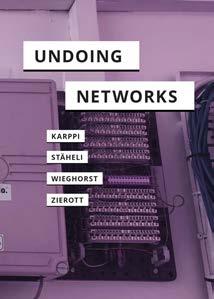

RANJODH SINGH DHALIWAL, THÉO LEPAGE-RICHER, AND LUCY SUCHMAN
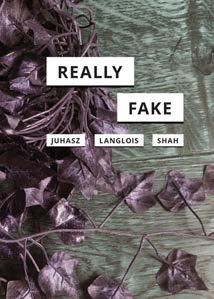
A critical examination of the figure of the neural network as it mediates neuroscientific and computational discourses and technical practices
Neural Networks proposes to reconstruct situated practices, social histories, mediating techniques, and ontological assumptions that inform the computational project of the same name. If so-called machine learning comprises a statistical approach to pattern extraction, then neural networks can be defined as a biologically inspired model that relies on probabilistically weighted neuronlike units to identify such patterns. Far from signaling the ultimate convergence of human and machine intelligence, however, neural networks highlight the technologization of neurophysiology that characterizes virtually all strands of neuroscientific and AI research of the past century. Taking this traffic as its starting point, this volume explores how cognition came to be constructed as essentially computational in nature, to the point of underwriting a technologized view of human biology, psychology, and sociability, and how countermovements provide resources for thinking otherwise.
MEDIA STUDIES

$18.00x Paper ISBN: 978-1-5179-1669-5


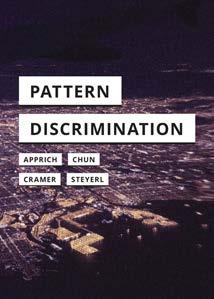

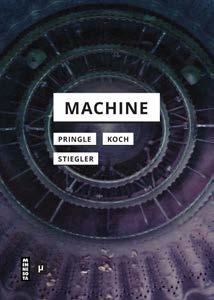
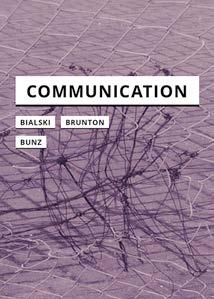

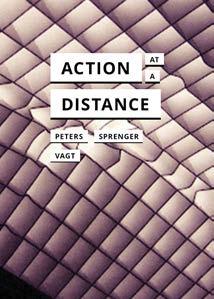
$18.00 Retail e-book ISBN: 978-1-4529-7049-3
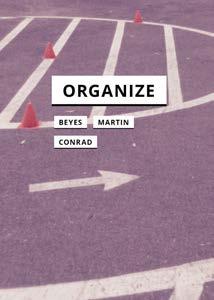
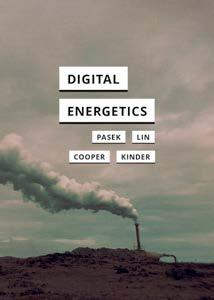
JANUARY 2024
110 pages 5 x 7
In Search of Media Series
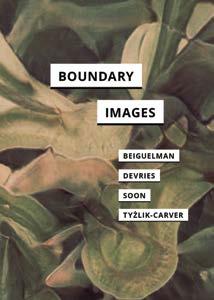
56 Z.UMN.EDU/INSEARCHOFMEDIA ● IN SEARCH OF MEDIA SERIES UNIVERSITY OF MINNESOTA PRESS FALL/WINTER 2023–24
Ranjodh Singh Dhaliwal is Ruth and Paul Idzik Collegiate Chair in Digital Scholarship and assistant professor of English and film, television, and theater at the University of Notre Dame.
Théo Lepage-Richer is a UTM postdoctoral fellow in the Institute of Communication, Culture, Information, and Technology at the University of Toronto.
Lucy Suchman is professor emerita in the anthropology of science and technology at Lancaster University, UK.
Opening Ceremony

Inviting Inclusion into University Governance
KATHRYN J. GINDLESPARGER
Gramsci at Sea SHARAD
Explores how university governance is restricted by ceremony and what it must do to survive
University shared governance is a microcosm of regulation and thrives particularly on ceremony to communicate its relevance. While many investigations of university governance examine representation, Opening Ceremony offers that, instead, stakeholders’ belief in institutional values can invite revision of stagnant governance practices. Governance tells us what the rules are, but it also tells us how to feel: opening up the ceremonial communication of this system invites new participants to rewrite how universities respond to felt needs. Kathryn J. Gindlesparger considers how to break the seal of ceremony to invite voices not traditionally heard in governance and, in doing so, protect the ideals of the institution and rebuild trust in higher education.
Kathryn J. Gindlesparger is associate professor of writing and rhetoric and director of the University Writing Program at Thomas Jefferson University in Philadelphia, Pennsylvania.
EDUCATION/AMERICAN STUDIES
$10.00x Paper ISBN: 978-1-5179-1592-6
$4.95 Retail e-book ISBN: 978-1-4529-6994-7
JULY
96 pages 5 x 7
Forerunners: Ideas First Series
Retail e-book files for this title are screen-reader friendly.
Exploring how the crisis of the world ocean is produced by capitalism and imperialism
How might an oceanic Gramsci speak to Black aquafuturism and other forms of oceanic critique? This succinct work reads Antonio Gramsci’s writings on the sea, focused in his prison notes on waves of imperial power in the inter-war oceans of his time. Sharad Chari argues that the imprisoned militant’s method is oceanic in form, and that this oceanic Marxism can attend to the roil of sociocultural dynamics, to waves of imperial power, as well as to the capacity of Black, Drexciyan, and other forms of oceanic critique to “storm” us on different shores.

Sharad Chari is associate professor of geography and critical theory at the University of California, Berkeley, and is affiliated with the Wits Institute for Social and Economic Research and the Stellenbosch Institute for Advanced Studies. He is author of Fraternal Capital and Apartheid Remains (forthcoming).
THEORY/PHILOSOPHY
$10.00x Paper ISBN: 978-1-5179-1591-9
$4.95 Retail e-book ISBN: 978-1-4529-6993-0
AUGUST
106 pages 5 x 7
Forerunners: Ideas First Series
Retail e-book files for this title are screen-reader friendly.
CHARI
Z.UMN.EDU/FORERUNNERS ● FORERUNNERS: IDEAS FIRST SERIES UNIVERSITY OF MINNESOTA PRESS FALL/WINTER 2023–24 57
Don't Miss These Upcoming Titles
PREVIOUSLY ANNOUNCED IN RECENT SEASONS
Trauma Sponges

Dispatches from the Scarred Heart of Emergency Response
JEREMY NORTON
Beyond an adrenaline ride or a chronicle of bravura heroics, this unflinching view of a Minneapolis firefighter reveals the significant toll of emergency response
MEMOIR
$25.95 Cloth/jacket ISBN 978-1-5179-1418-9
$25.95 Retail e-book ISBN 978-1-4529-6975-6
OCTOBER
384 pages 6 x 9
Strike!
Twenty Days in 1970 When Minneapolis Teachers Broke the Law
WILLIAM D. GREEN
The complex and dramatic history of an illegal teachers’ strike that forever altered labor relations and Minnesota politics
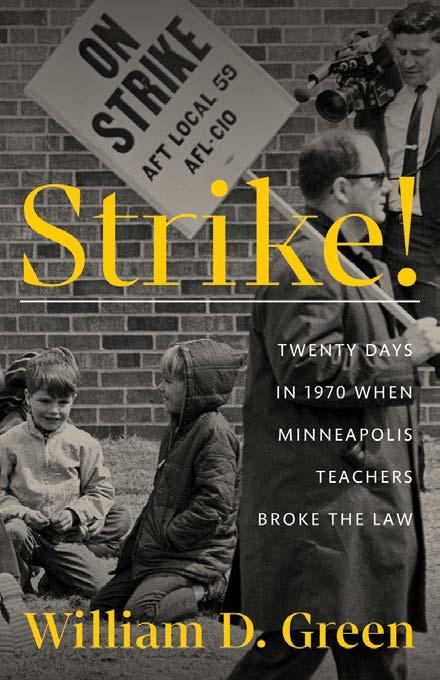
MINNESOTA HISTORY/EDUCATION
$19.95 Paper ISBN 978-1-5179-1295-6
$80.00xx Cloth ISBN 978-1-5179-1344-1
$19.95 Retail e-book ISBN 978-1-4529-6731-8
NOVEMBER
The Breeding Birds of Minnesota
History, Ecology, and Conservation
LEE A. PFANNMULLER, GERALD J. NIEMI, AND JANET C. GREEN
FOREWORD BY FRANCESCA J. CUTHBERT
A comprehensive, detailed, illustrated history of Minnesota’s breeding birds—the first in nearly a century

NATURAL HISTORY
$59.95 Cloth/jacket ISBN 978-1-5179-0679-5
DECEMBER
616 pages 1,145 color plates 14 tables 11 1/4 x 11 1/4
224 pages 11 b&w illustrations 5 1/2 x 8 1/2
UNIVERSITY OF MINNESOTA PRESS FALL/WINTER 2023–24 58
Announcing a New Journal
International Journal of Surrealism
KATHARINE CONLEY AND ALYCE MAHON, EDITORS
The definitive journal in the growing field of Surrealist studies
International Journal of Surrealism (IJS) creates a welcome space for critical ideas and debate centered on Surrealism, its international history, and its ongoing worldwide influence on contemporary culture. The journal seeks to document, celebrate, and interrogate the intellectual and aesthetic repercussions of the Surrealist movement across a wide array of fields: literature and literary theory; painting, sculpture, and photography; performance, film, and music; and philosophy, political thought, and new media.
Encompassing both scholarly and creative perspectives on Surrealism and its global manifestations, IJS is committed to exploring the practice and reception of Surrealism around the world, throughout the Global South as well as in Europe and the Global
North, within and by Indigenous cultures and international movements. IJS is attentive to individualism and collective identity; global and transcultural modernity and modernism; and science, ecology, and natural history.
IJS upholds the mission of the International Society for the Study of Surrealism (ISSS), serving as a platform for Surrealist studies in the contemporary moment and for the digital age.
Subscription rates: Individuals: $60.00; Institutions: $250.00.
Outside USA: Individuals: $65.00; Institutions: $255.00.
>> Published twice per year.
Kate Conley is professor of French and Francophone studies and chancellor professor of modern languages and literatures at the College of William & Mary. She is author of Surrealist Ghostliness
Alyce Mahon is professor of modern and contemporary art at the University of Cambridge. She is author of The Marquis de Sade and the Avant-Garde

HOW TO ACCESS JOURNALS
For a full list of present and past issues and the associated table of contents, please visit Project MUSE (https://muse.jhu.edu).
For more information on University of Minnesota Press journals, visit www.upress.umn.edu/journal-division.
59
UNIVERSITY OF MINNESOTA PRESS FALL/WINTER 2023–24 International Journal of Surrealism volume 1 | number 1 | Fall 2023
Buildings & Landscapes

Journal of the Vernacular Architecture Forum
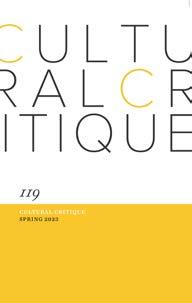

MICHAEL J. CHIARAPPA AND MARGARET GRUBIAK, EDITORS
Subscription rates: Individuals: $65.00; Institutions: $156.00.
Outside USA: Individuals: $70.00; Institutions: $161.00.
>> Published twice per year.
Critical Ethnic Studies
NEDA ATANASOSKI AND CHRISTINE HONG, EDITORS
Open access edition available at Manifold (http://manifold.umn.edu).
>> Published twice per year.
Cultural Critique
CESARE CASARINO, FRIEDA EKOTTO, MAGGIE HENNEFELD, JOHN MOWITT, AND SIMONA SAWHNEY, EDITORS

Subscription rates: Individuals: $50.00; Institutions: $143.00.
Outside USA: Individuals: $55.00; Institutions: $150.50.
>> Published four times per year.
Environment, Space, Place
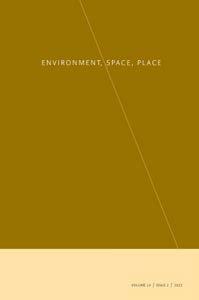
TROY R. E. PADDOCK, EDITOR
Subscription rates: Individuals: $35.00; Institutions: $208.00.
Outside USA: Individuals: $40.00; Institutions: $213.00.
>> Published twice per year.
Future Anterior
Journal of Historic Preservation

History, Theory, and Criticism
JORGE OTERO-PAILOS, EDITOR
Subscription rates: Individuals: $32.50; Institutions: $81.00.
Outside USA: Individuals: $37.50; Institutions: $86.50.
>> Published twice per year.
Journal of American Indian Education
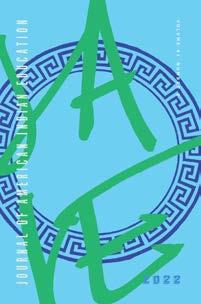
BRYAN M C KINLEY JONES BRAYBOY AND TERESA L. M C CARTY, EDITORS
Subscription rates: Individuals: $38.00; Institutions: $93.50.
Outside USA: Individuals: $43.00; Institutions: $99.00.
>> Published three times per year.
Mechademia: Second Arc
SANDRA ANNETT AND FRENCHY LUNNING, EDITORS
Mechademia: Second Arc promotes research on anime, manga, and related fields, making key articles by East Asian authors accessible to English-speaking readers.
Subscription rates: Individuals: $44.00; Institutions: $93.50. Outside USA: Individuals: $49.00; Institutions: $99.00.
>> Published twice per year.
60 JOURNALS UNIVERSITY OF MINNESOTA PRESS FALL/WINTER 2023–24
The Moving Image Journal of the Association of Moving Image Archivists

DEVIN ORGERON, EDITOR
Subscription rates: All members of the Association of Moving Image Archivists receive this journal. Individuals: $32.50; Institutions: $93.50.

Outside USA: Individuals: $37.50; Institutions: $99.00.
>> Published twice per year.
Native American and Indigenous Studies
HEIDI KIIWETINEPINESIIK STARK AND GINA STARBLANKET, EDITORS
Subscription rates: Subscriptions are a benefit of membership in the Native American and Indigenous Studies Association: $25–$200 annually. Libraries can subscribe through Project MUSE.
>> Published twice per year.
Norwegian-American Studies
The Journal of the NorwegianAmerican Historical Association
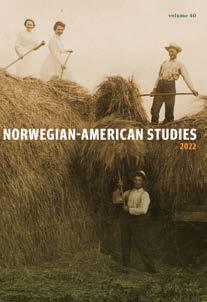
ANNA M. PETERSON, EDITOR
Subscription rates: Individuals: $50.00; Institutions: $107.50.
Outside USA: Individuals: $55.00; Institutions: $113.00.
>> Published once per year.
Preservation Education & Research
EMILY BERGERON AND PAUL HARDIN KAPP, EDITORS
Subscription rates: Individuals: $75.00; Institutions: $80.50.
Outside USA: Individuals: $90.00; Institutions: $86.00.
>> Published once per year.
Verge Studies in Global Asias
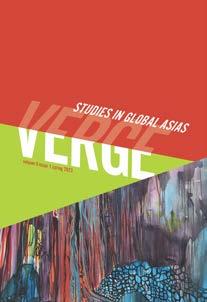
TINA CHEN, EDITOR
Subscription rates: Individuals: $38.00; Institutions: $124.50. Outside USA: Individuals: $43.00; Institutions: $131.00.
>> Published twice per year.
Wicazo Sa Review
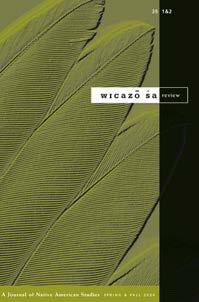
A Journal of Native American Studies
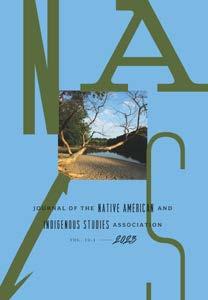
LLOYD L. LEE, EDITOR
Subscription rates: Individuals: $21.50; Institutions: $62.50.
Outside USA: Individuals: $26.50; Institutions: $68.00.
>> Published twice per year.
HOW TO ACCESS
JOURNALS
For a full list of present and past issues and the associated table of contents, please visit Project MUSE (https://muse.jhu.edu).
To check the availability of back issues and to place a single copy order, please email pubsvc.tsp@sheridan.com.
For more information on University of Minnesota Press journals, including subscriptions and advertising, visit www.upress.umn.edu/journal-division.
61 JOURNALS UNIVERSITY OF MINNESOTA PRESS FALL/WINTER 2023–24
Manifold Scholarship
Manifold is a free-to-install and easy-to-use platform to publish and read networked, media-rich books on the web. Manifold, funded by a grant from the Andrew W. Mellon Foundation, is a joint partnership between the University of Minnesota Press, the GC Digital Scholarship Lab at the Graduate Center of the City University of New York, and Cast Iron Coding (Portland, OR).
z.umn.edu/AboutManifold

The University of Minnesota Press podcast
The University of Minnesota Press podcast is a place where Press authors join peers, scholars, and friends in conversation. Topics include environment, humanities, race, social justice, cultural studies, art, literature and literary criticism, media studies, sociology, anthropology, grief and loss, mental health, and more. Episodes are available on Apple, Google Podcasts, Spotify, and most places podcasts are published.
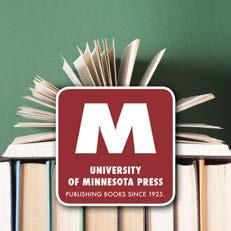
62 UNIVERSITY OF MINNESOTA PRESS FALL/WINTER 2023–24 at (612) 301-1931. Unsettling Choice Race, Rights, and the Partitioning of Public Education UJJU AGGARWAL
z.umn.edu/UMP_Pod Code: MN 50550 50551 50552 50553
U.S. SALES REPRESENTATIVES
Minnesota and all other states not included below:
University of Minnesota Press
111 Third Avenue South, Suite 290
Minneapolis, MN 55401-
Phone: (612) 301-1931
Fax: (612) 301-1980
E-mail: mwsmiley@umn.edu
NORTHEAST
(Connecticut, Maine, Massachusetts, New Hampshire, Rhode Island, Vermont)
New England Book Representatives
Stephen Williamson

68 Main Street
Acton, MA 01720-3540
Phone: (978) 263-7723
Fax: (978) 263-7721
E-mail: WWABooks@aol.com
MID-ATLANTIC
Parson Weems' Publisher Services
(Key National Accounts, Albany Metro & Upstate New York, New Jersey, Maryland, Delaware, Pittsburgh Metro & Pennsylvania)
Eileen Bertelli
48 Wawayanda Road
Warwick, NY 10990
Phone: (845) 987-7233
Cell: (845) 492-7309
Fax: (866) 761-7112
Email: eileenbertelli@parsonweems.com
(Key National Accounts)
Christopher R. Kerr
11 Penhallow Street
Boston, MA 02124-2307
Phone: (914) 329-4961
Fax: (866) 861-0337
Email: chriskerr@parsonweems.com
(Key National Accounts, New York City Metro, Hudson Valley, Philadelphia Metro, Washington DC Metro)
Jason Kincade
19 Bushwick Avenue, 3R Brooklyn, NY 11211
Phone: (347) 244-2165
Fax: (866) 861-0337
Email: jasonkincade@parsonweems.com
MIDWEST
(Illinois, Indiana, Iowa, Kansas, Kentucky, Michigan, Missouri, Nebraska, North
Dakota, Ohio, South Dakota, Wisconsin)
Miller Trade Book Marketing
Bruce Miller
1426 W. Carmen Avenue
Chicago, IL 60640
Phone: (773) 275-8156
Fax: (312) 276-8109
Cell: (773) 307-3446
E-mail: bruce@millertrade.com
Email: ellentowell.kdg@gmail.com
(Northern California, Washington)
Lise Solomon
1047 Stannage Ave.
Albany, CA 94706
Phone: (510) 528-0579
Fax: (510) 900-1088
Email: lise.solomon@sonic.net
(Southern California)
Mark O’Neal
4941 Defiance Way
San Diego, CA 92115
Phone: (562) 587-0956
Fax: (877) 847-1619
Email: oneal.mark@gmail.com
EXPORT SALES REPRESENTATIVES CANADA
Lexa Publishers’ Representatives
Mical Moser
Phone: (718) 781-2770
Fax: (514) 221-3412
E-mail: micalmoser@me.com
BOOKSELLER INFORMATION
University of Minnesota Press fulfillment operations are through the Chicago Distribution Center. The address is:
University of Minnesota Press
c/o Chicago Distribution Center 11030 South Langley Ave. Chicago, IL 60628
Phone: (800) 621-2736 or (773) 702-7000
Fax: (800) 621-8476 or (773) 702-7212
We provide pubnet access. Our address is: PUBNET@202-5280.

For our current discount structure, please contact our sales manager at (612) 301-1931.
We use three discount structure classes: Trade, Short, and Super Short. Short titles are marked with “x”, super short titles are marked “xx”, and trade titles are not marked.
RETURN POLICY
Address for returns:
Returns Department
University of Minnesota Press
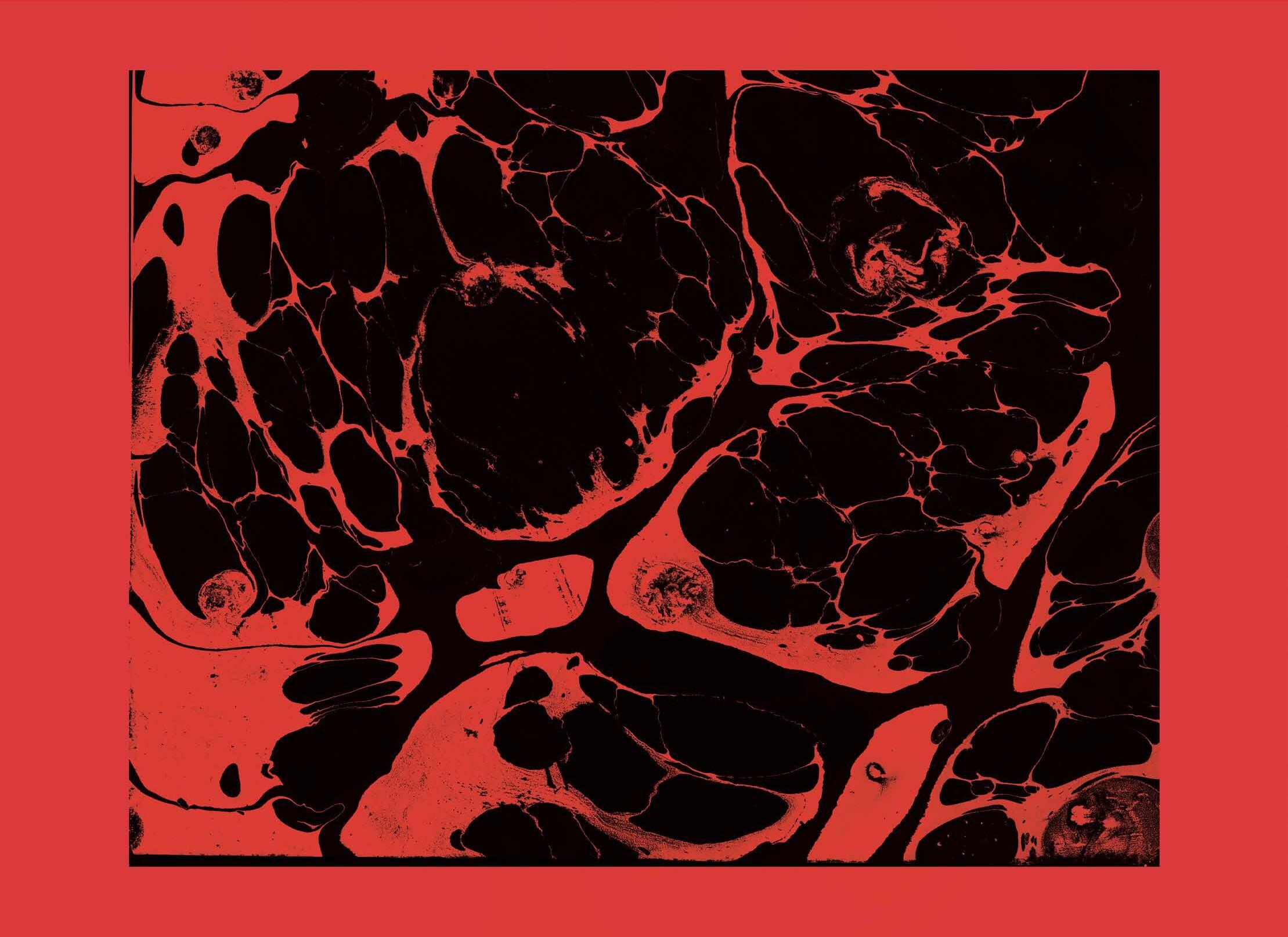

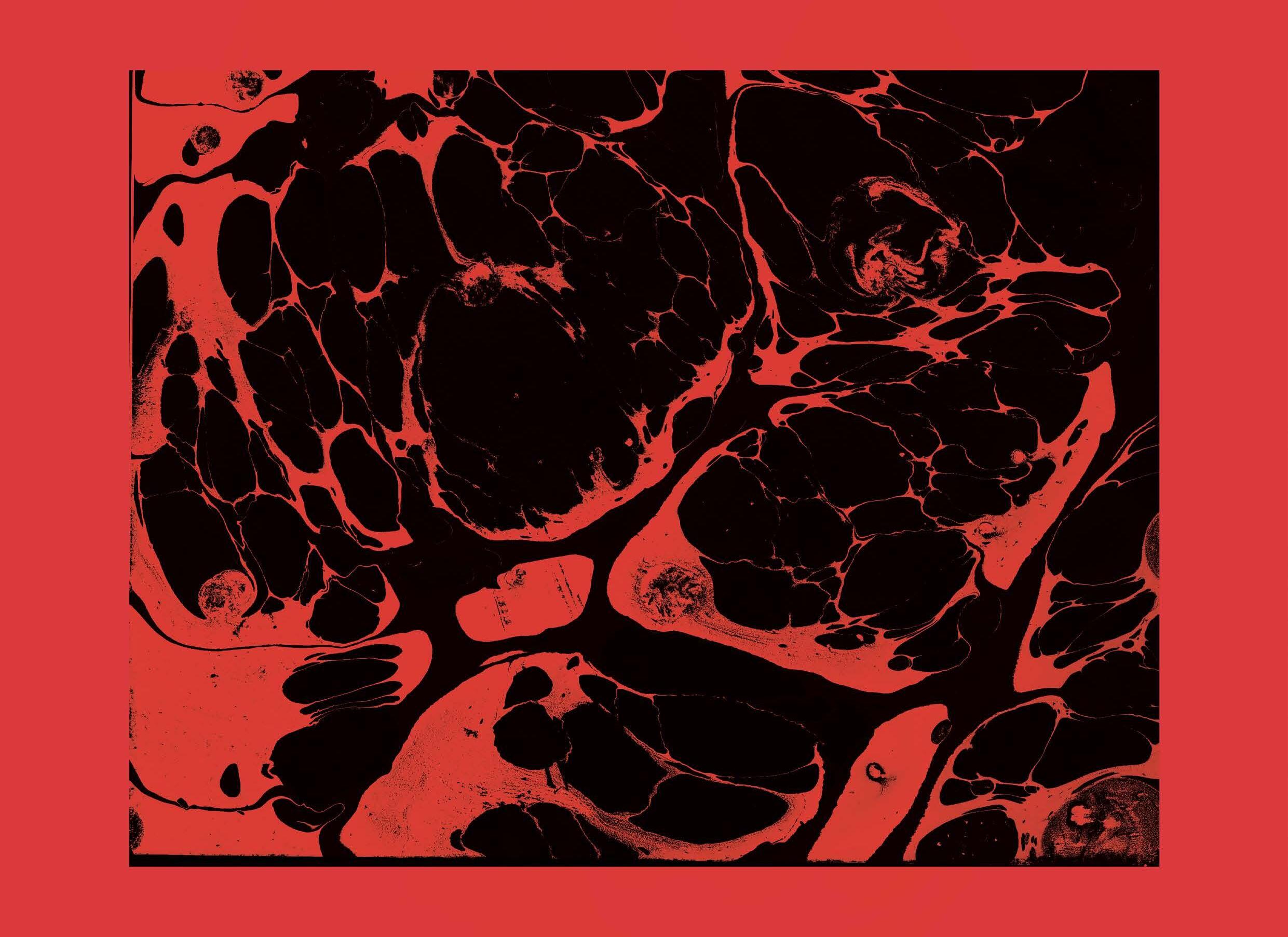



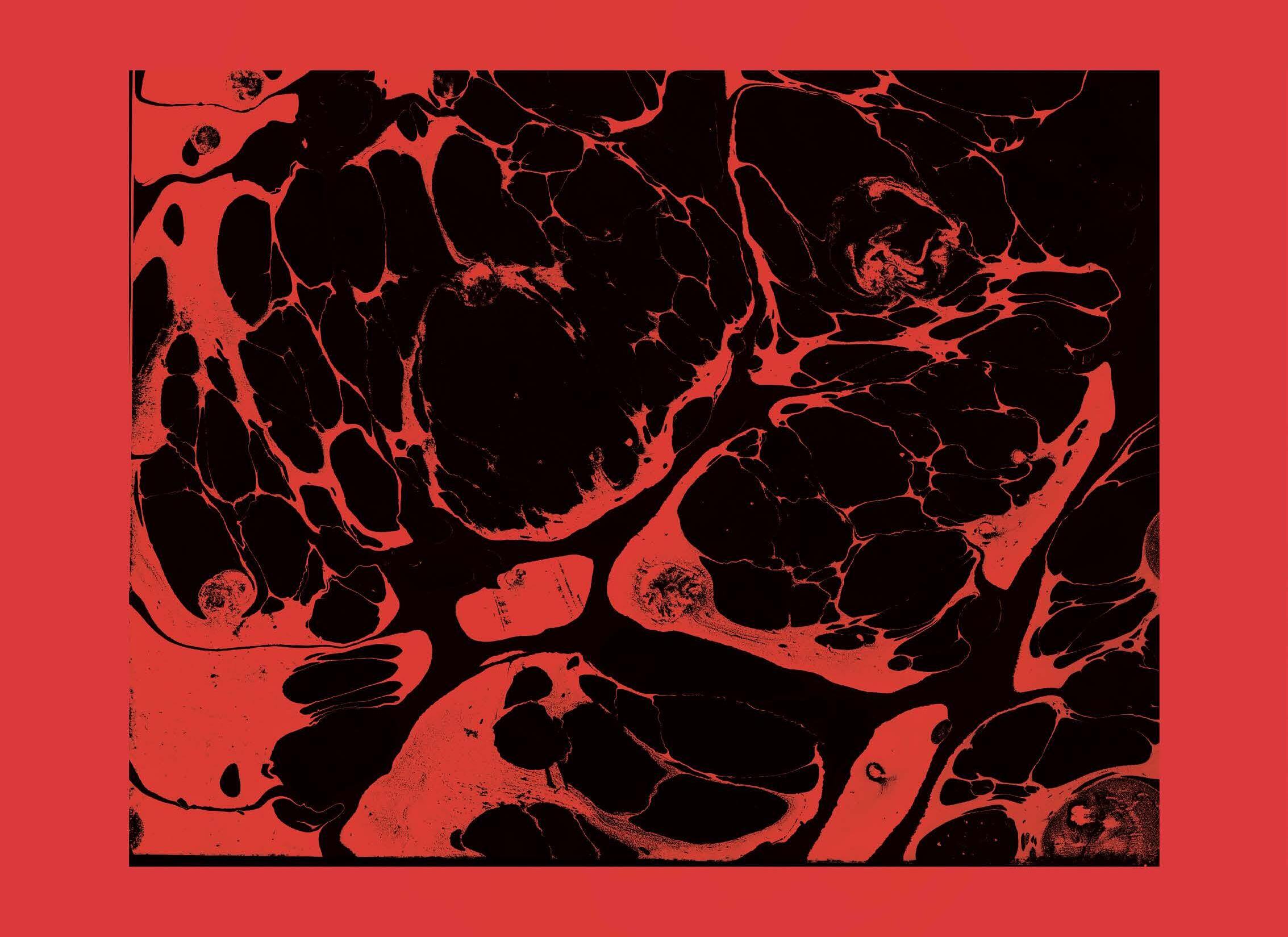
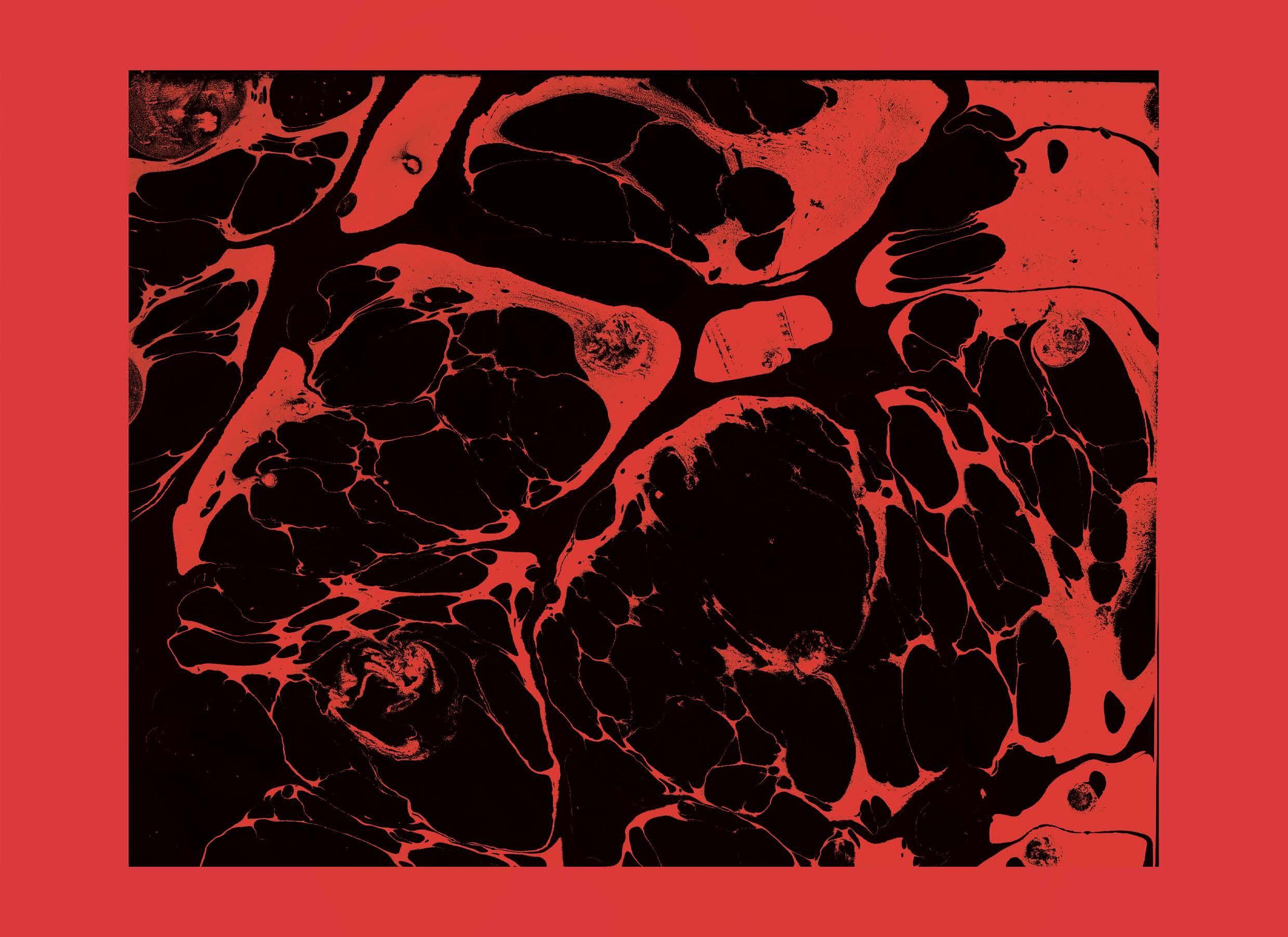
c/o Chicago Distribution Center 11030 S. Langley Ave. Chicago, IL 60628
DEFECTIVE COPIES
Accepted at any time for replacement.
CLAIMS FOR DAMAGED OR SHORT SHIPMENTS
Claims must be made within 30 days of invoice date. Indicate whether you wish replacement copies or cancellation of order.
OVERSTOCK RETURNS
NewSouth Books
c/o Alliance Distribution Services (ADS)
9 Pioneer Ave, Tuggerah NSW 2259 Australia
Tel: +61 (2) 4390 1300
Email: adscs@alliancedist.com.au www.newsouthbooks.com.au
JAPAN
MHM Limited
1-1-13-4F, Kanda-Jimbocho Chiyoda-ku
101-0051, Tokyo Japan
Phone: 81-3-3518-9181
Fax: 81-3-3518-9523
Email: sales@mhmlimited.co.jp
Invoice number, date, and packing list with ISBN must accompany shipment. Returned copies must be clean and in saleable condition (no pricing residue, bent corners, or shelf-worn covers will be accepted). The distribution center retains the right of final decision determining the saleability of returned books. Returns deemed unsaleable will be returned to the bookseller at the bookseller’s expense.
PERIOD OF ELIGIBILITY
Eighteen months from the invoice date. Superseded editions returnable up to 90 days after publication of new edition. OSI or OP titles not returnable 60 days after declaration of status.
CREDIT ALLOWED
100% with invoice information. Returns without invoice information will be checked against most recent purchases and credited at those discounts. Books not purchased from the University of Minnesota Press distribution center will be returned to the bookseller at the bookseller’s expense.
International volume 1 | number 1 | Fall 2023





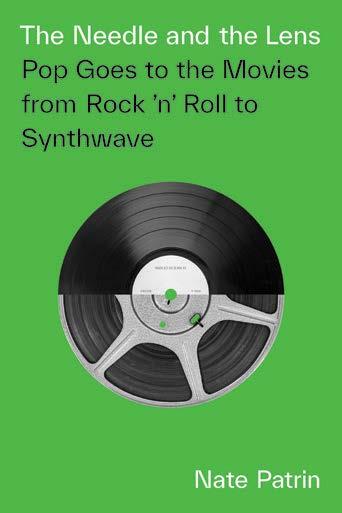
iv University o F Minnesota Press 111 third avenue south suite 290 minneapolis, mn 55401-2520 www.upress.umn.edu t o order call 1-800-621-2736 Non-profit Ort US Postage Paid Twin Cities, MN Permit No. 90155








































 —Peter Brooks, Publishers Weekly
—Peter Brooks, Publishers Weekly




















































































































































 STEPHANIE LI
STEPHANIE LI






 KATE MACLEAN
KATE MACLEAN




































































































